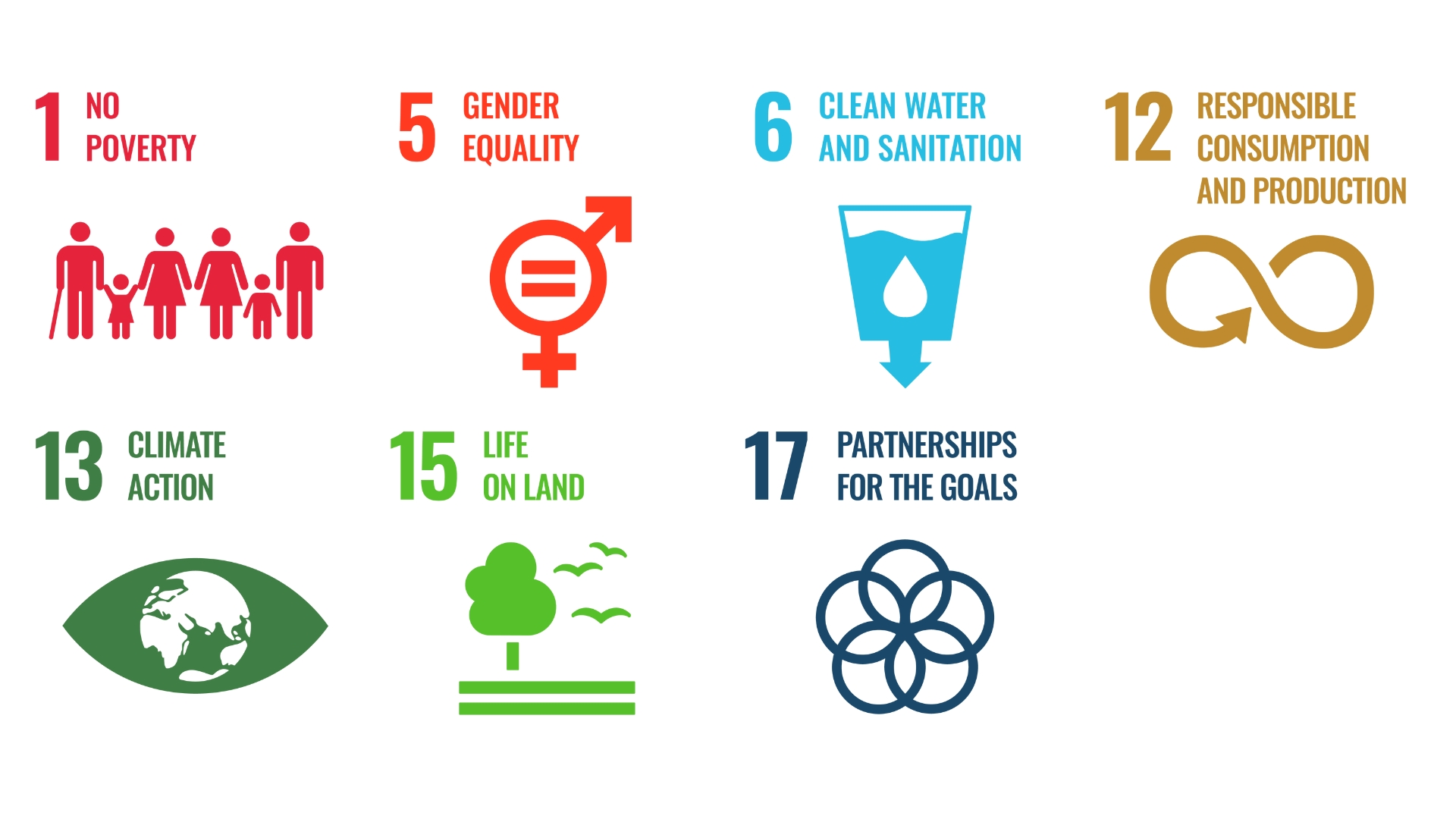“
Looking forward, our aim is to grow our sustainability ambitions across all the markets in which we operate and to find new ways to be more impactful as a group.”
Alain Poncelet
ECOM Chief Executive Officer
Sustainability in figures
Countries with sustainability programs
26
Farmers in sustainability programmes
340k+
Farmers on digital platforms
230k+
Map
List
Where we operate
Some key programmes
Our programmes are aligned with international sustainability and regenerative agriculture standards and certifications in various origins, covering the 3 pillars of sustainability (social, environmental and economic). Click on the map to explore some of our different sustainability programmes and initiatives around the world!
Projects
Coffee, Cocoa and Climate Change Project

 2020-2023
2020-2023
In Nicaragua, in partnership with GIZ, this programme was designed to improve the productivity of smallholder farms. The project saw 100,000 coffee and cocoa trees planted, and 320+ producers were trained in good agricultural practices.
Discover more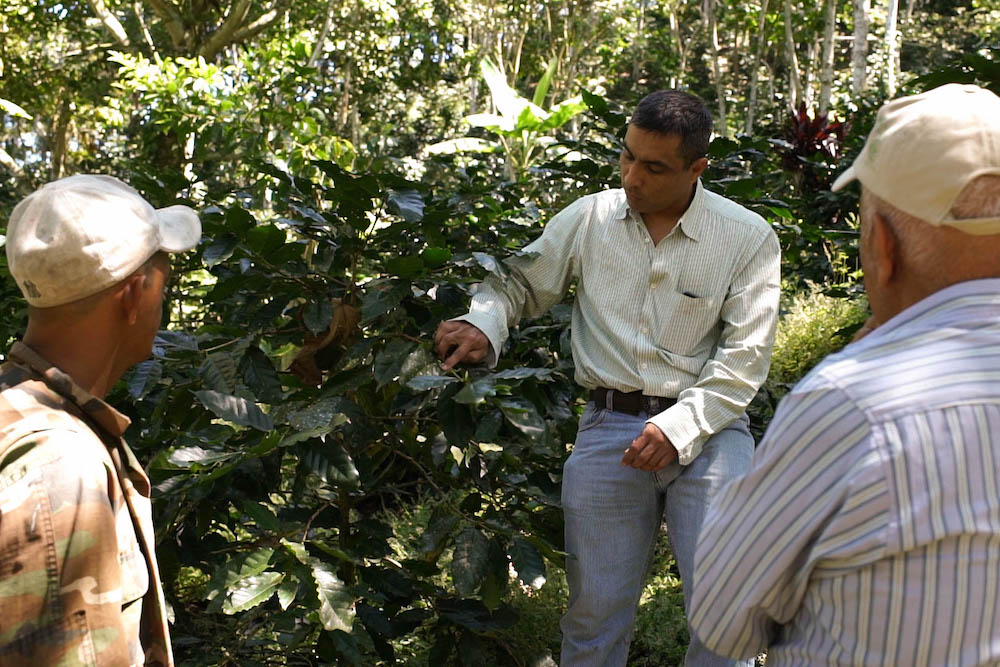
Projects
MOCCA

 2020-2023
2020-2023
In Peru, MOCCA (Maximising Opportunities in Coffee and Cocoa in the Americas) supports >18,000 coffee and cocoa producers in the Amazonas, Cajamarca, San Martín and Central Jungle regions to increase their productivity. ECOM Peru and SMS are now looking to expand our activities to new regions of Peru.
Discover more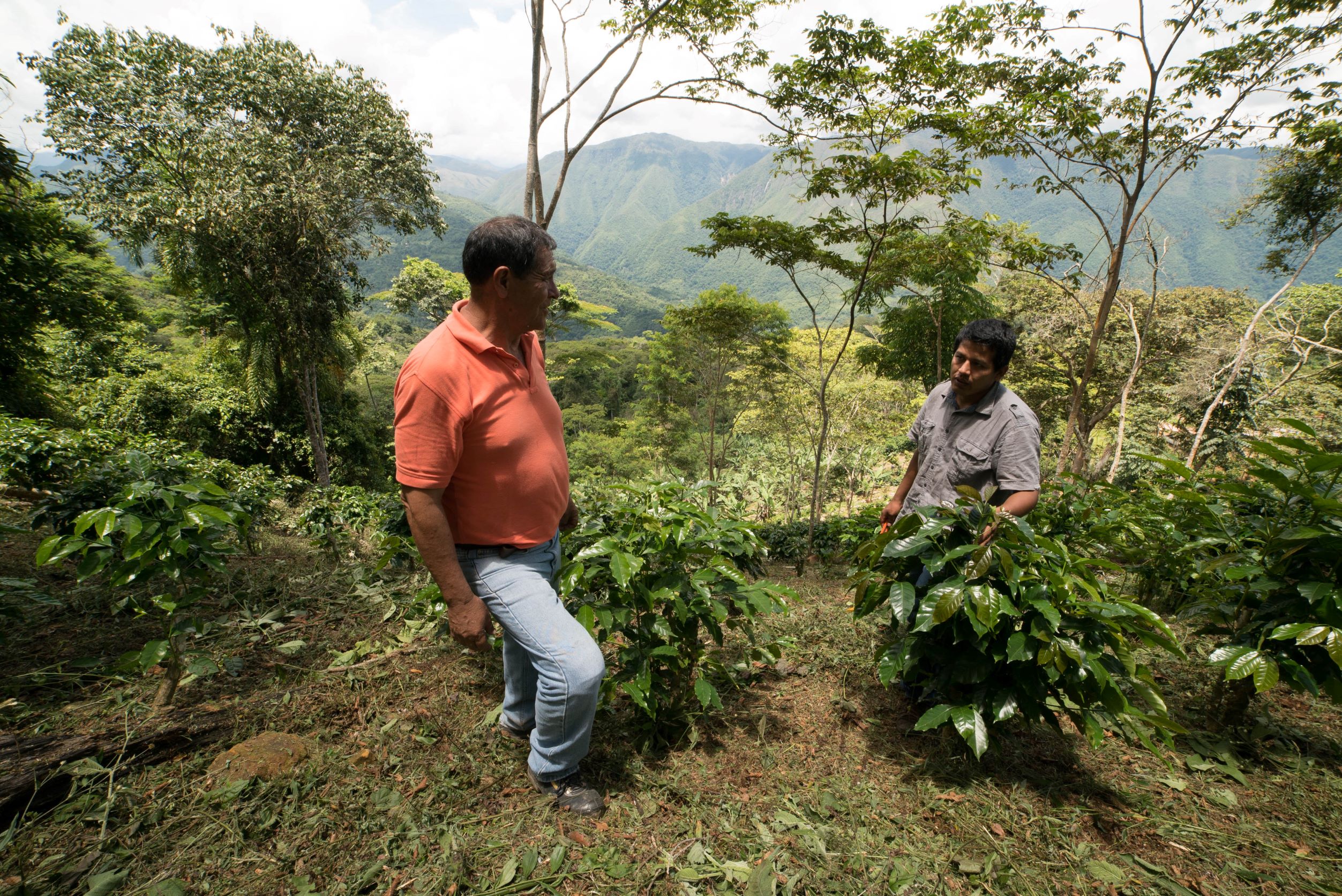
Projects
Smallholder Farmer Livelihoods

 2023-Present
2023-Present
Through the Uganda Smallholder Farmer Livelihoods Initiative, we work with USAID to increase coffee and sesame exports from Uganda. By the end of 2023, 10,836 farmers (6,811 men, 4,025 women) were onboarded to the export market.
Discover more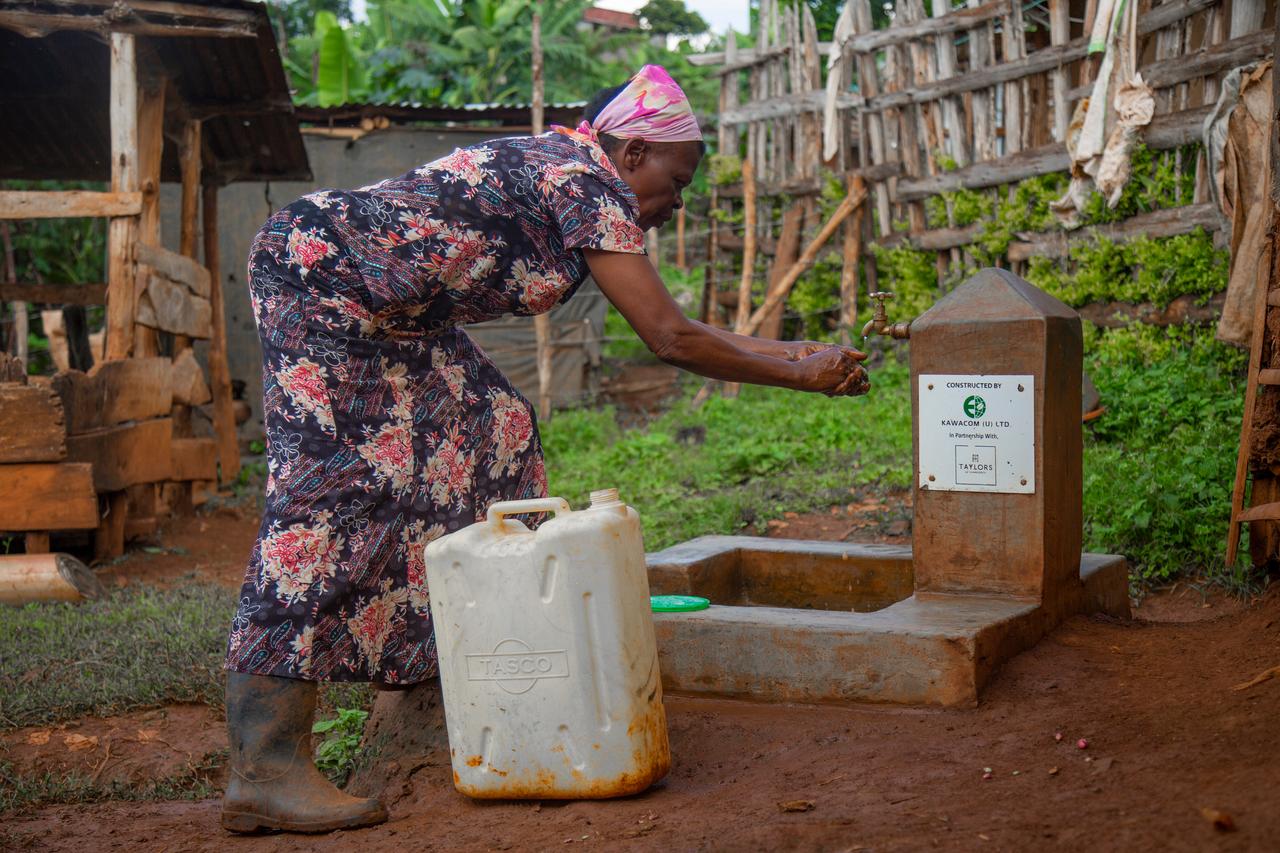
Projects
VSLAs
 2023
2023
In Ghana, we promote the use of VSLAs (Village Savings and Loans Associations) in cocoa-growing communities. As of September 2023, 52 VSLAs had been set up in 36 communities with 1,283 women. In total, the VSLAs have collected $66,049.82 in savings to date (~$1,270 per VSLA) and disbursed $42,284.39 in loans for their members ($813 per VSLA).
Discover more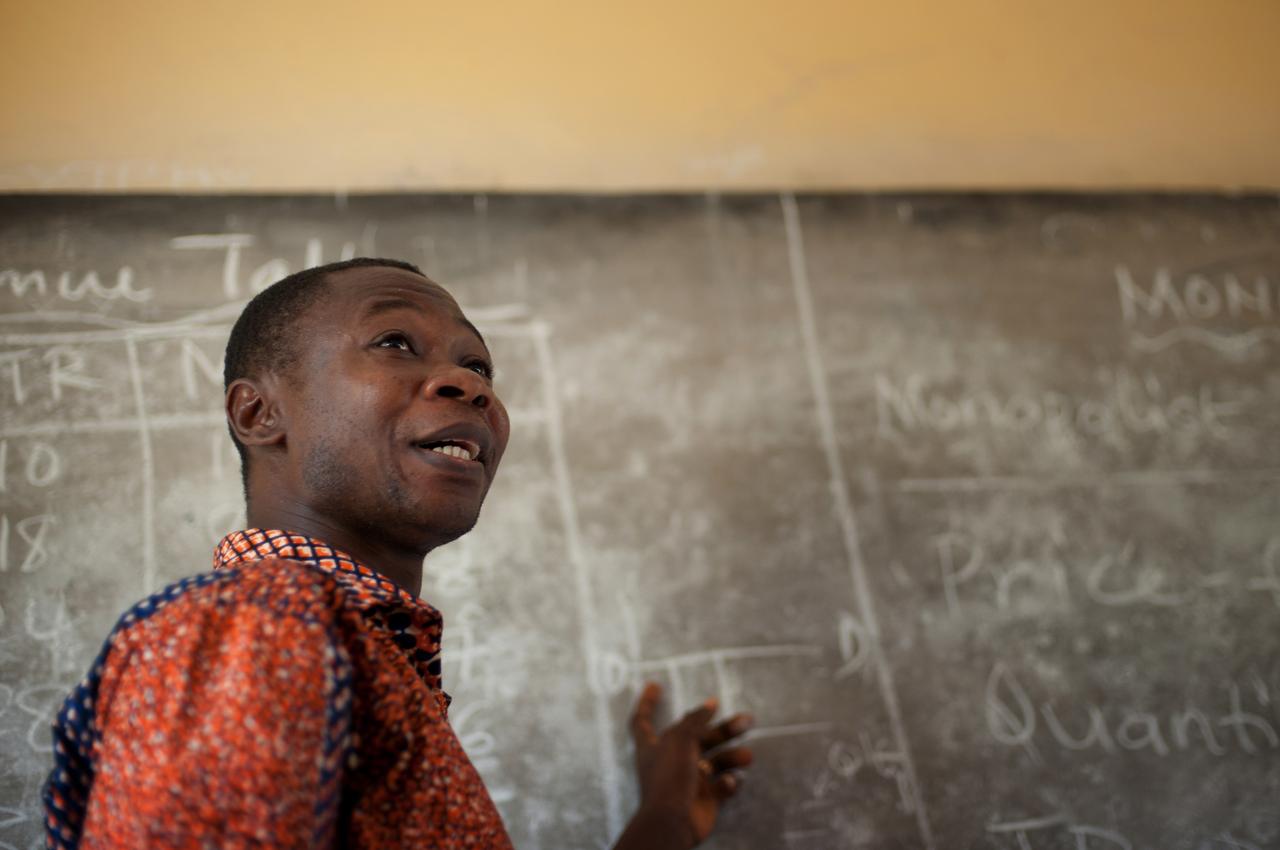
Projects
Financing growth
 2023
2023
In Vietnam, our SMS team partnered with IDH Farmfit Fund to provide access to inputs through affordable finance. The program successfully reached 493 coffee farmers in 2023. Our aim is to expand the scheme into a self-sufficient business, supporting more farmers to develop sustainable businesses.
Discover more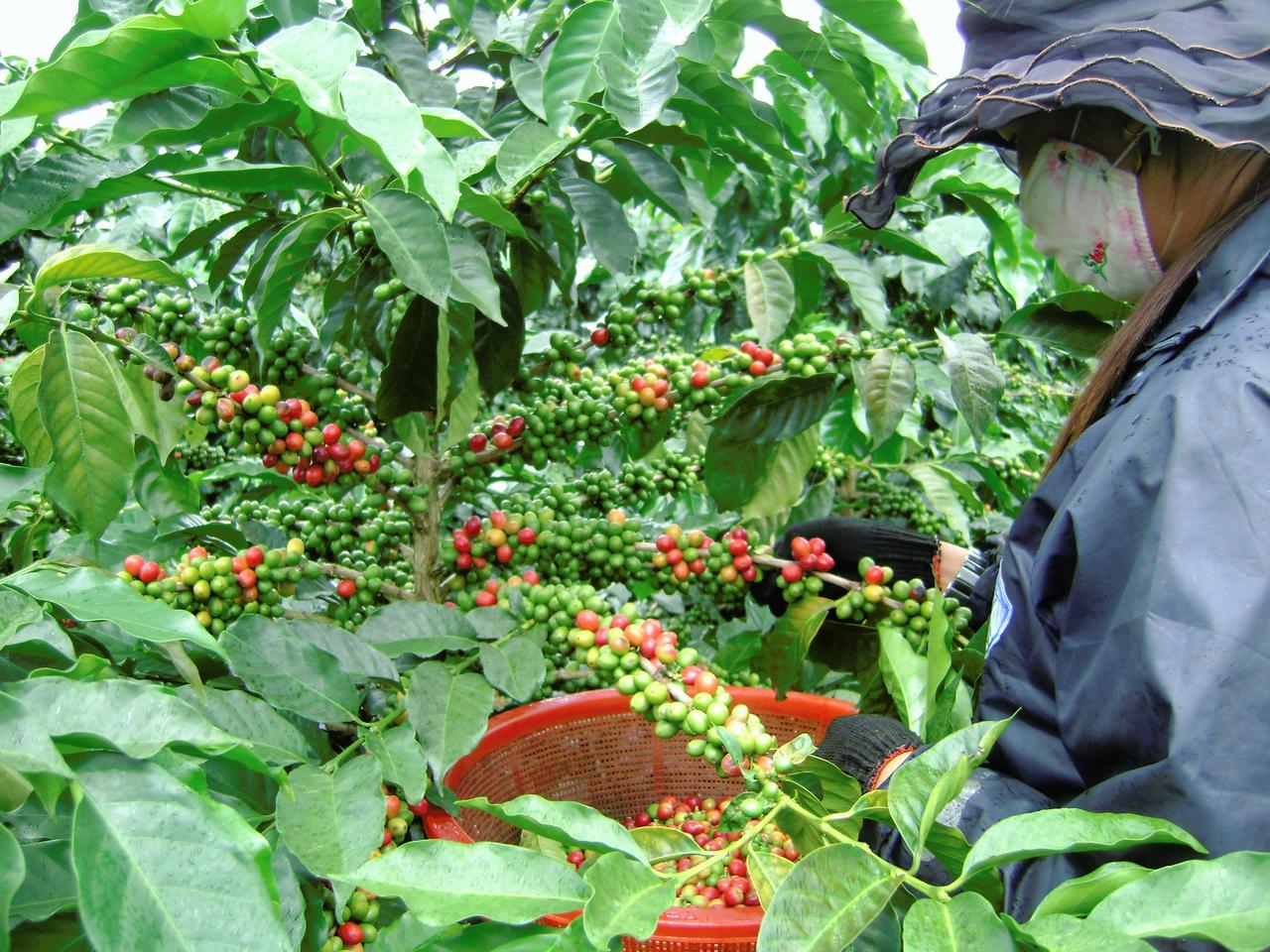
Projects
Market systems for cocoa farmers' income
 2020-2023
2020-2023
In Côte d’Ivoire, Ghana, and Nigeria, we worked with BMZ and develoPPP to improve and diversify farming households’ incomes. We have supported 5,000 farmers by diversifying crops and supporting the marketing of their products.
Discover more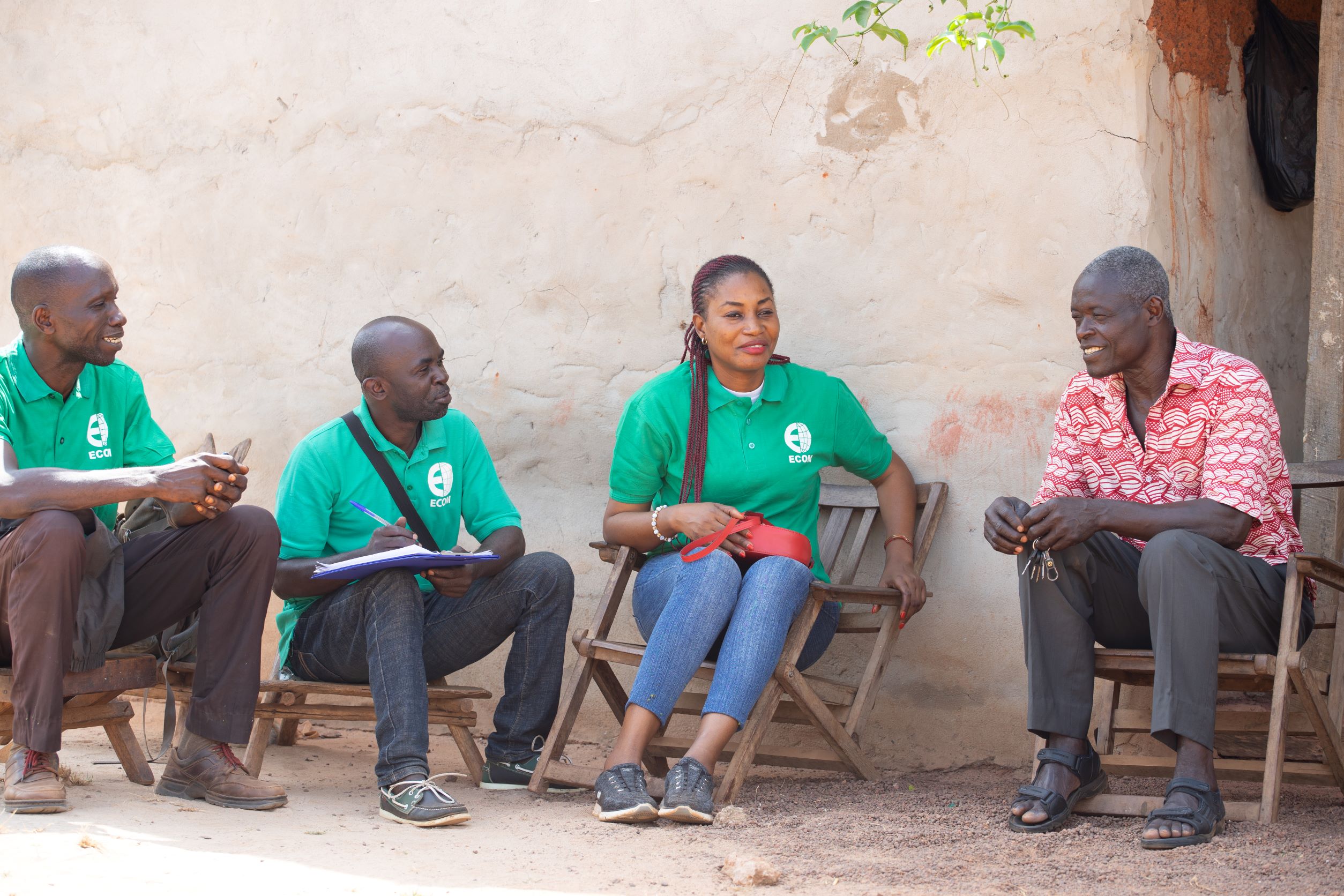
Projects
ECOM Foundation's Satellite School
 2022-Present
2022-Present
In El Salvador, the ECOM Foundation supports education for children and adults in farming communities. The San Andres School in Apaneca, for instance, opened in 2022 with 360 students. By 2023, it grew to 418 and had a 95% attendance rate.
Discover more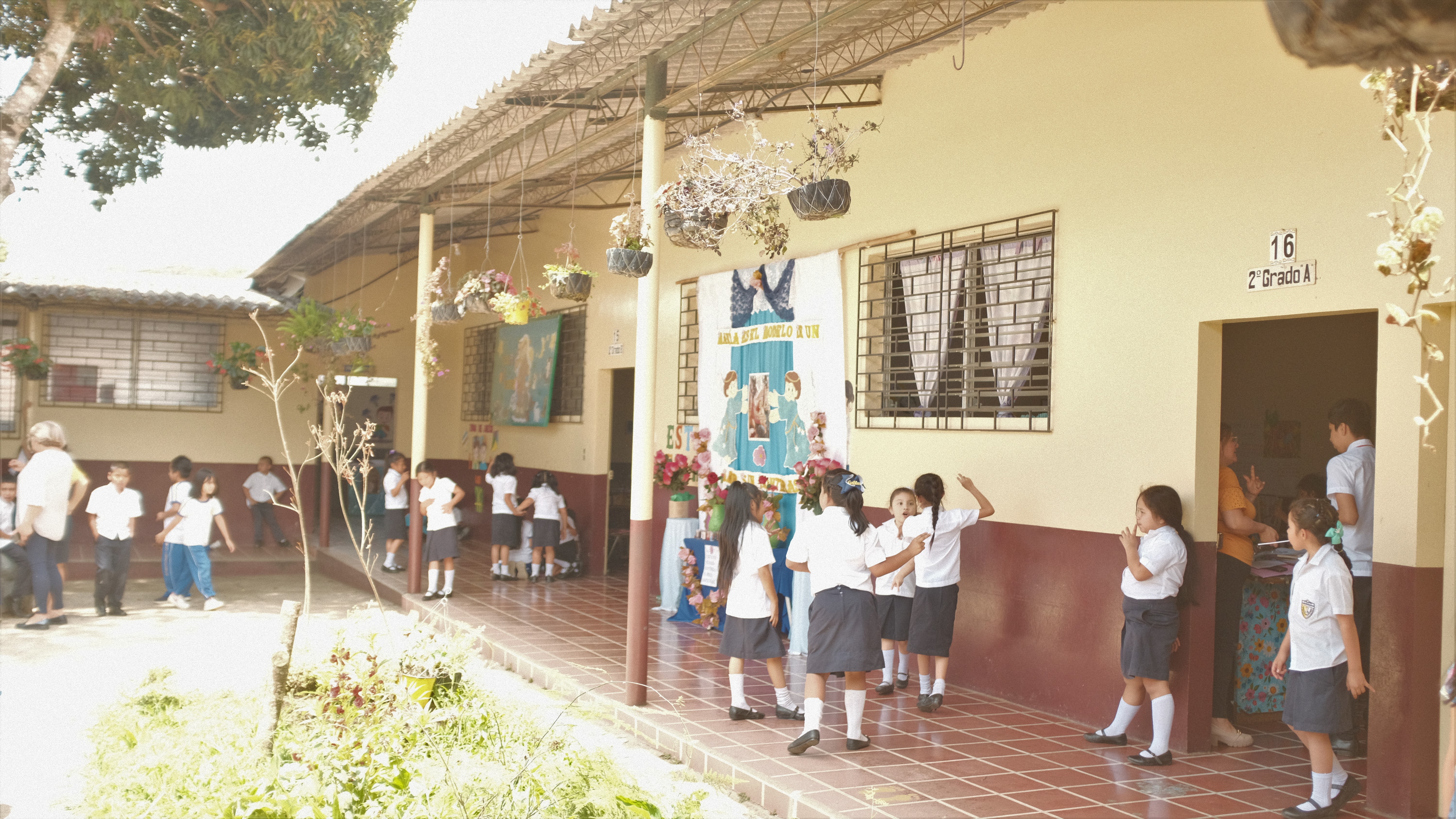
Projects
Helping rebuild Mexico’s cocoa industry
 2014
2014
In Mexico, we provided over 1,000 producers with cocoa varieties that offer higher resistance to disease, supporting increased production. We also assist producers in cultivating these varieties, strengthening both their earnings and the future of Mexican cocoa.
Discover more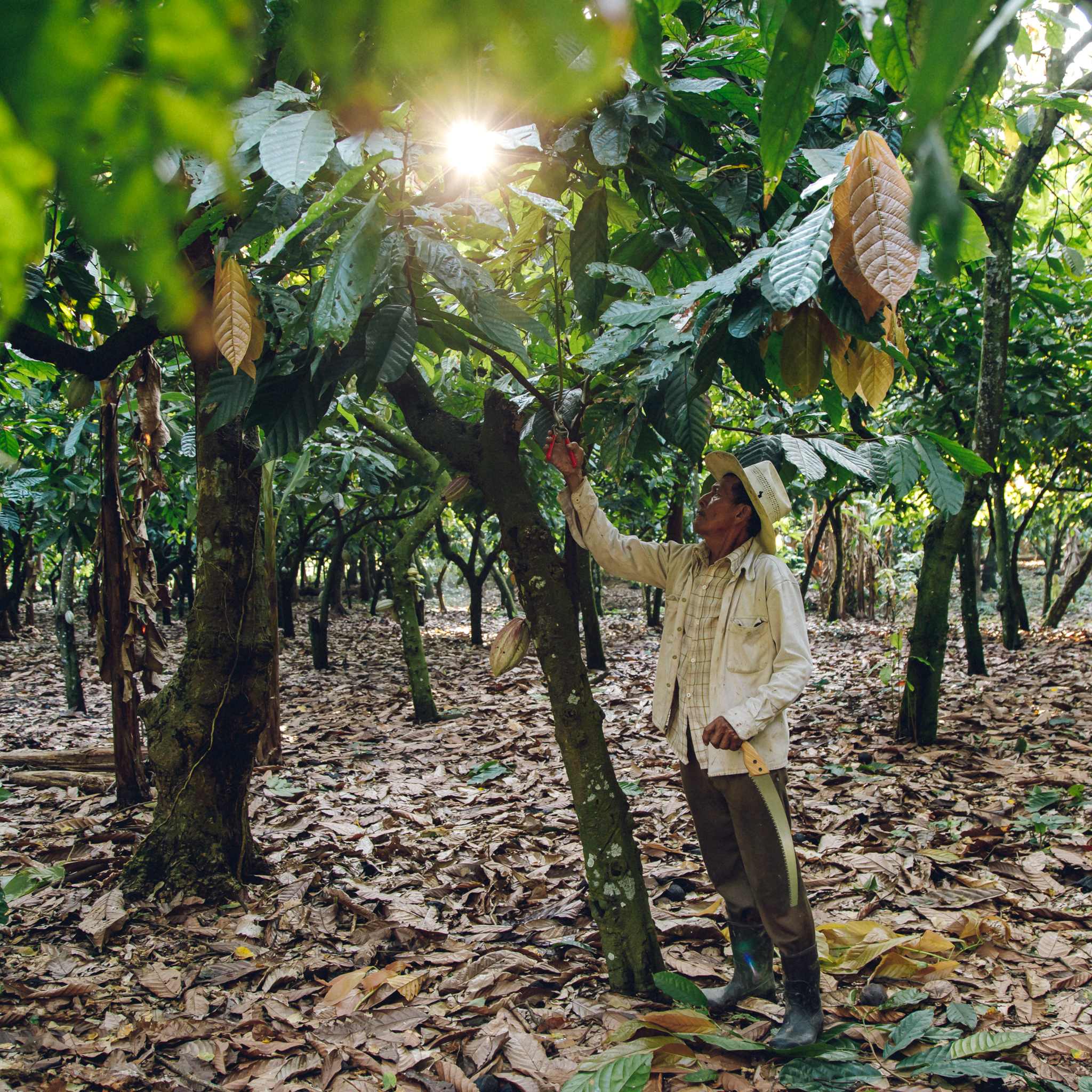
Projects
Gender equity in cocoa
 2020-2023
2020-2023
ECOM Ghana partnered with USAID to promote gender equality in the cocoa value chain. Together, we piloted gender mainstreaming across our operations, training staff and cocoa communities on inclusive farming. While this programme is currently specific to Ghana, we hope to adapt it in our other origins.
Discover more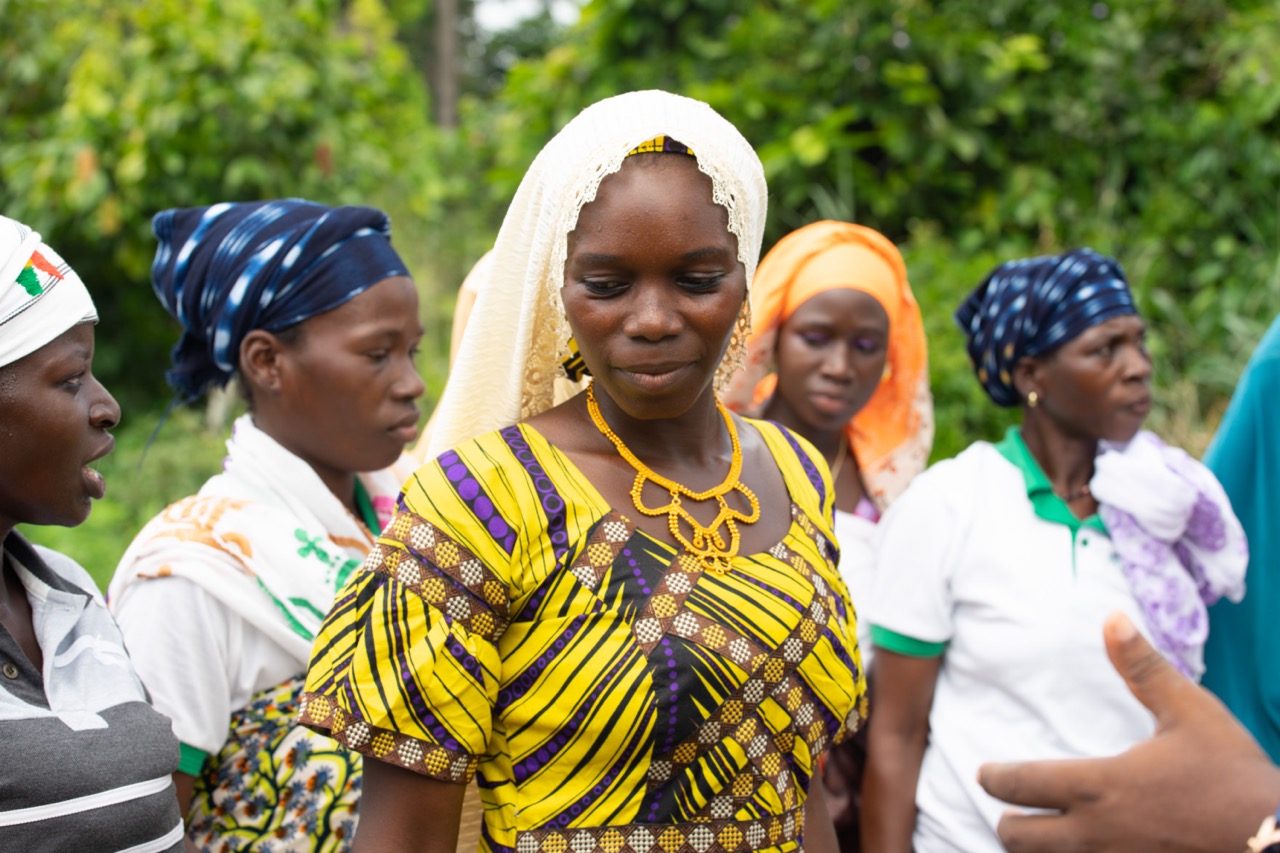
Projects
Bosques del Mañana
 2021
2021
In Nicaragua, ECOM and Nestlé launched the Bosques del Mañana (Forests of Tomorrow) project, planting 2,600,315 trees. The project's impact has been felt in various regions, from Wiwilí to Nueva Guinea, generating environmental benefits and fostering community engagement.
Discover more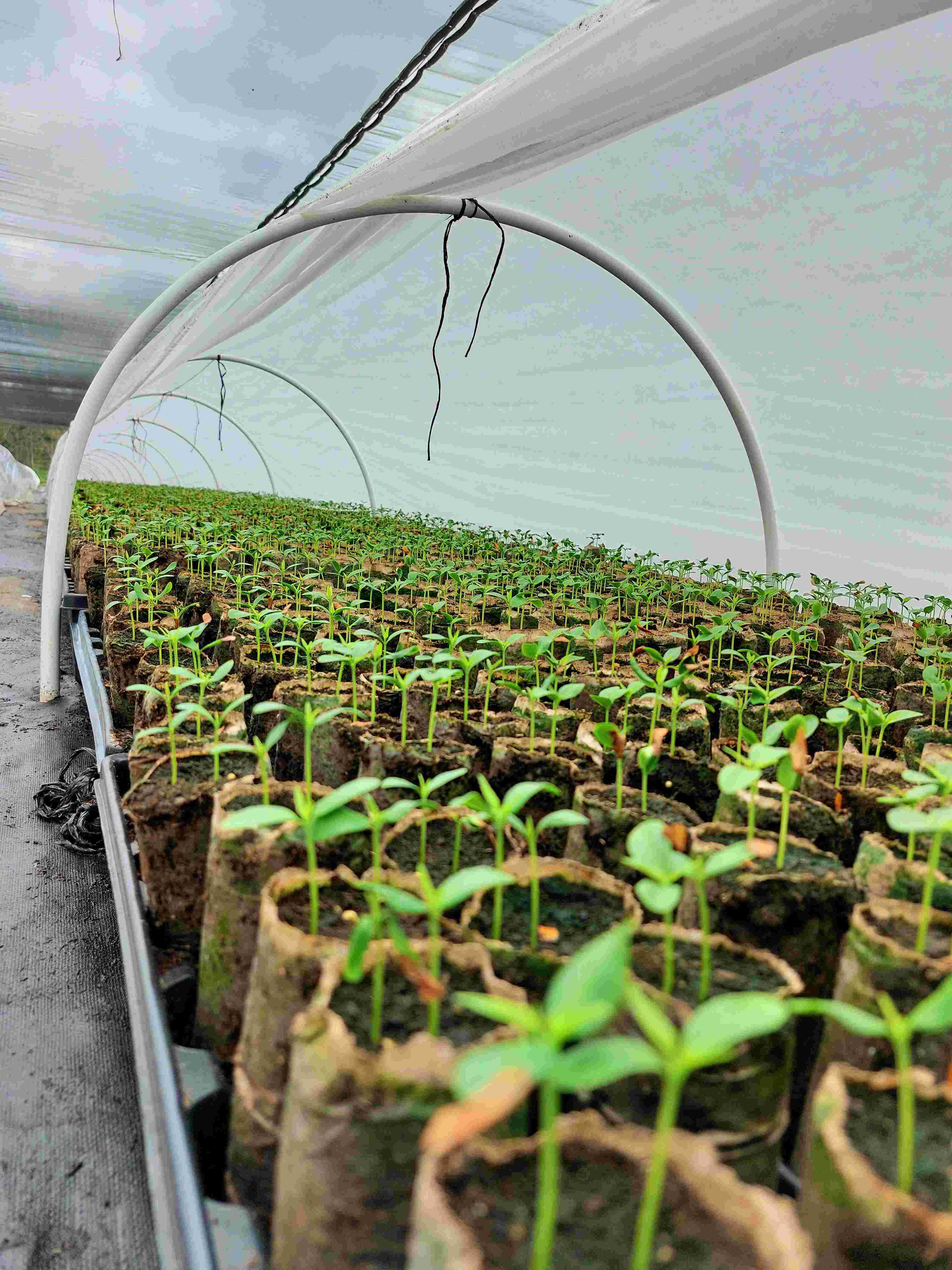
Projects
The Akawa Project
 2016-Present
2016-Present
In Burundi, we launched the Akawa project to help farmers reach financial autonomy beyond coffee production. With >11,000 farmers involved, the project includes training Leader Farmers in Good Agricultural Practices (GAPs) and gender empowerment initiatives.
Discover more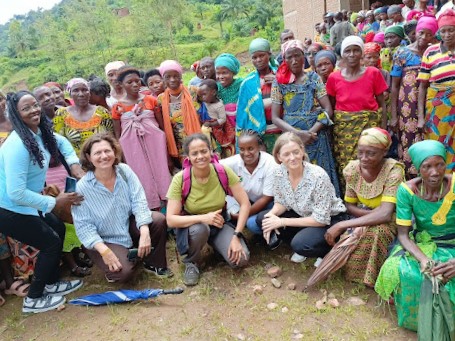
Projects
Ethiopia's coffee supply chain
 2022-2024
2022-2024
In Ethiopia, one of the world’s largest coffee-producing countries, ECOM and GIZ are working to strengthen human rights and sustainability. So far, 200 farmers in Jimma have adopted the ECOM SMS Code, while 125 farmers in Illubabor have been trained in good agricultural practices and business management.
Discover more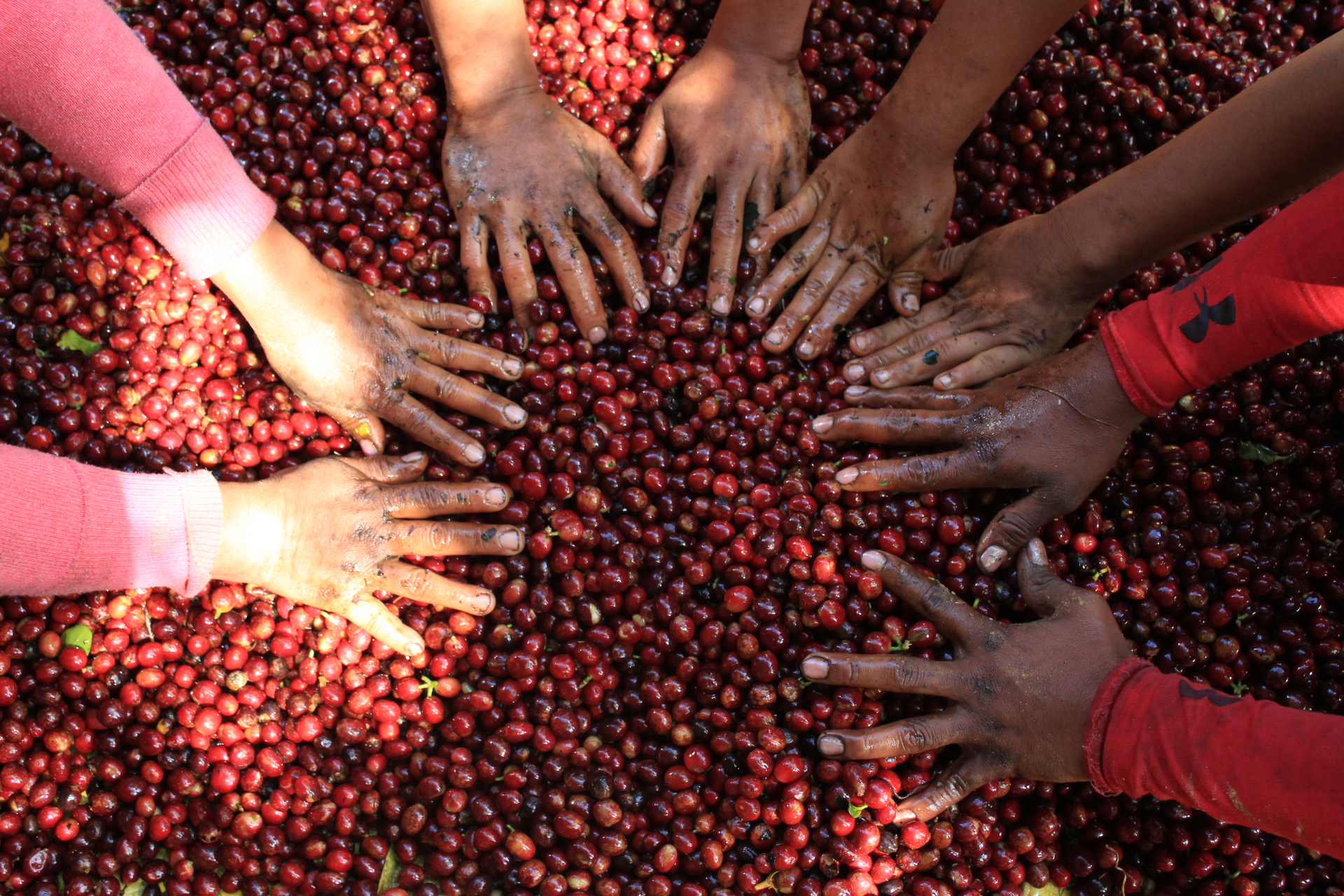
Projects
Alianza de Sueños
 2022-Present
2022-Present
In Costa Rica, Alianza de Sueños (Dream Alliance) is a project with Nespresso’s AAA farms to prevent child labour during the coffee harvest season. The first Casa de Alegria (House of Joy) opened in 2022 with 30 children. Following its success, the initiative grew to 3 Casas supporting 120 children and their families, with similar schemes in Nicaragua and Guatemala.
Discover more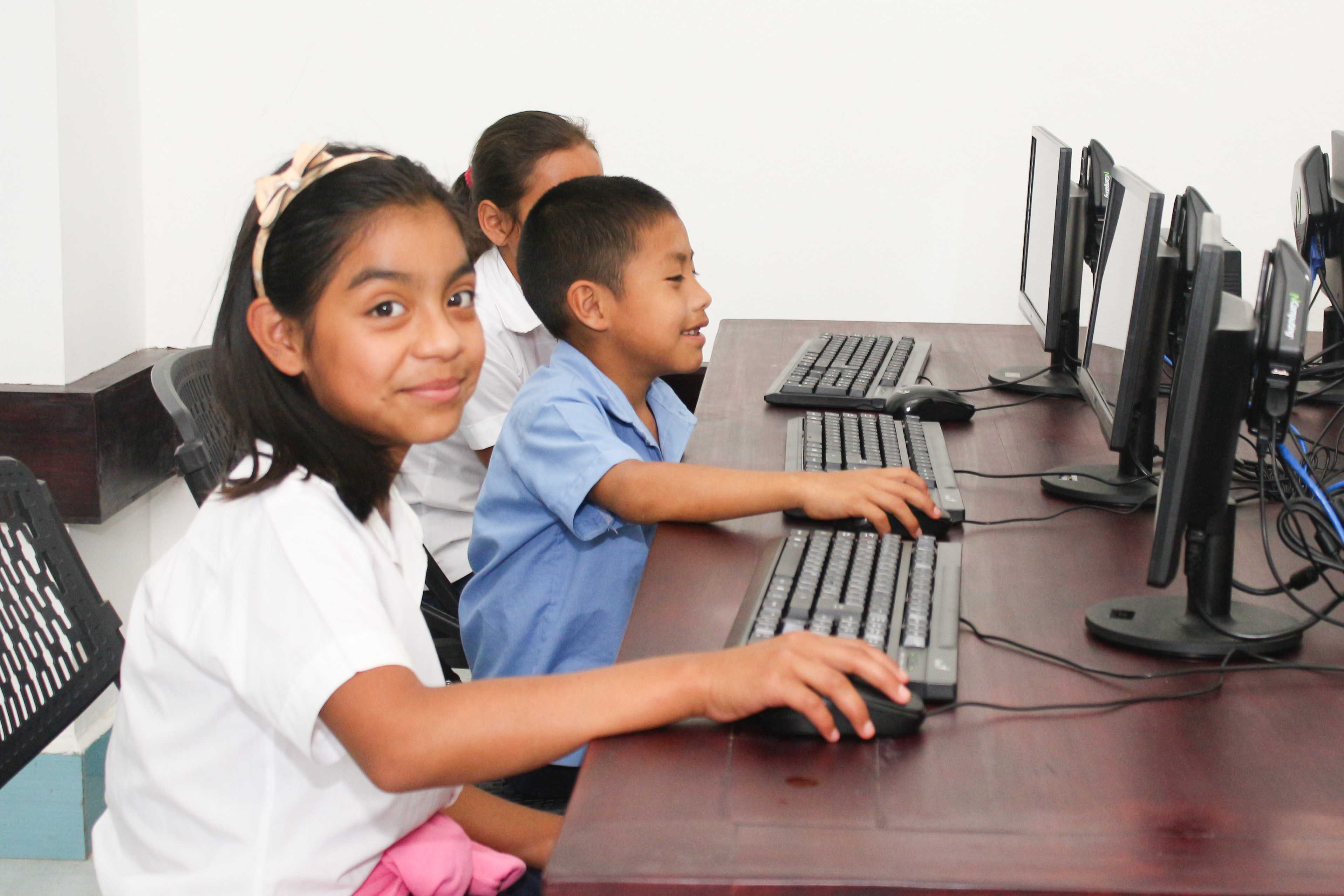
Projects
Growing the ‘Fruits of Restitution’
In Colombia, following decades of violence, many coffee producers were forced to abandon their lands. Condor, ECOM’s Colombian operation, works with URT (the Land Restitution Unit) to help producers cultivate high-quality, specialty beans and sell these to buyers. This educational project has enabled producers to move from being conflict survivors to commercial entrepreneurs.
URT describes the coffee from these families as the ‘Frutas de Restitucion’ (the ‘Fruits of Restitution’).
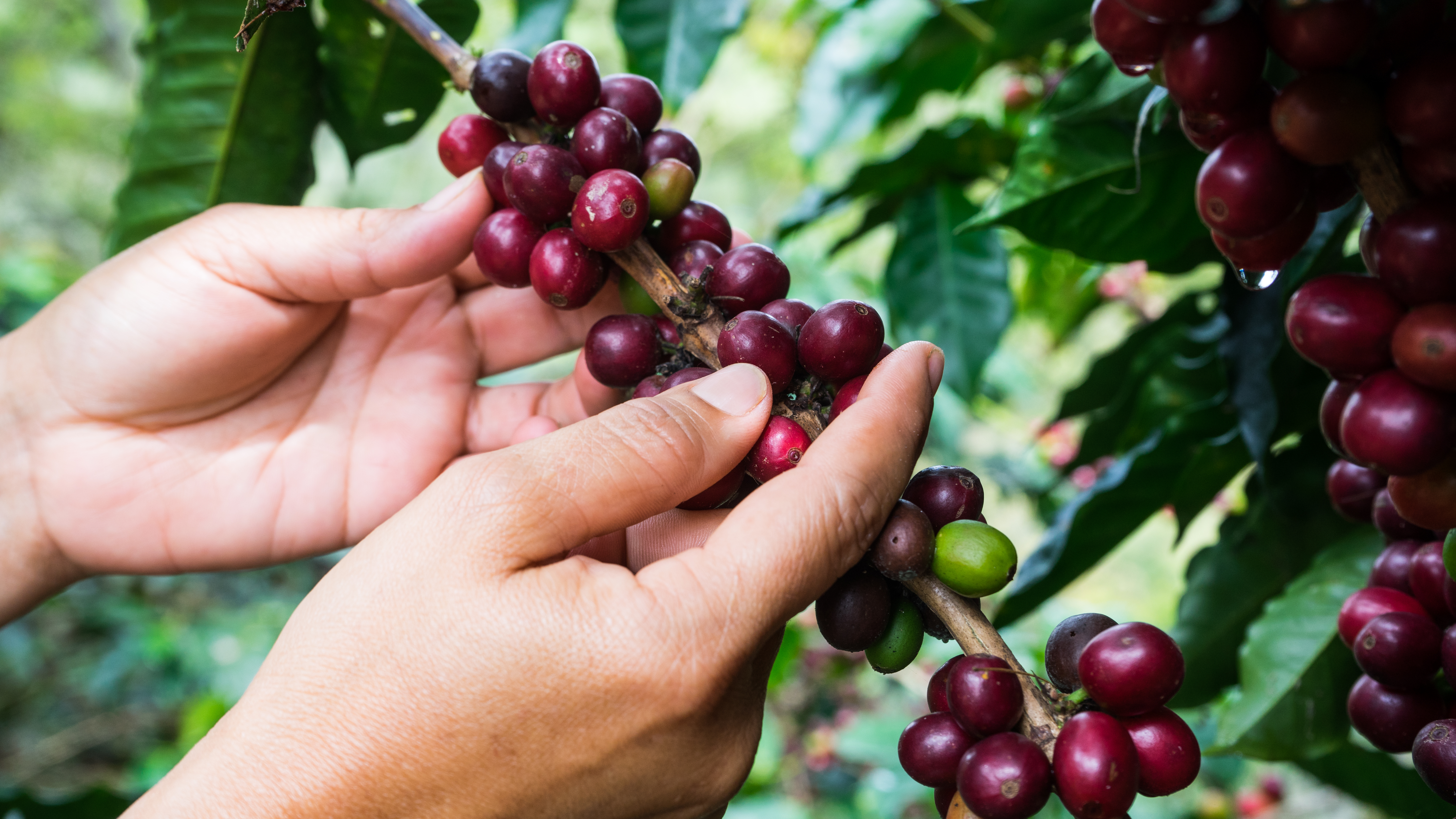
Projects
Building climate resilience in Vietnam
In Vietnam, we have implemented initiatives designed to improve the climate resilience of the Robusta supply chain in two of the main producing provinces in the Central Highlands.
This includes implementing soil conservation practices, with distribution of organic fertilisers, soil amendments, cover crops and mycorrhizae products, supported by the development of nutrition programmes on a large scale, with up to 4,000 farms provided with soil analysis.
Discover more
Projects
Applying regenerative agriculture
In Brazil, our Solo Verde project supports the transition towards more regenerative soil management practices by distributing cover crops to producers.
Our investments in regenerative agricultural practices helps food to be grown more sustainably while building a foundation for a healthier and more productive agricultural future.
The project is now aiming to triple its area and reach >3,000 hectares of coffee plantation.
Discover more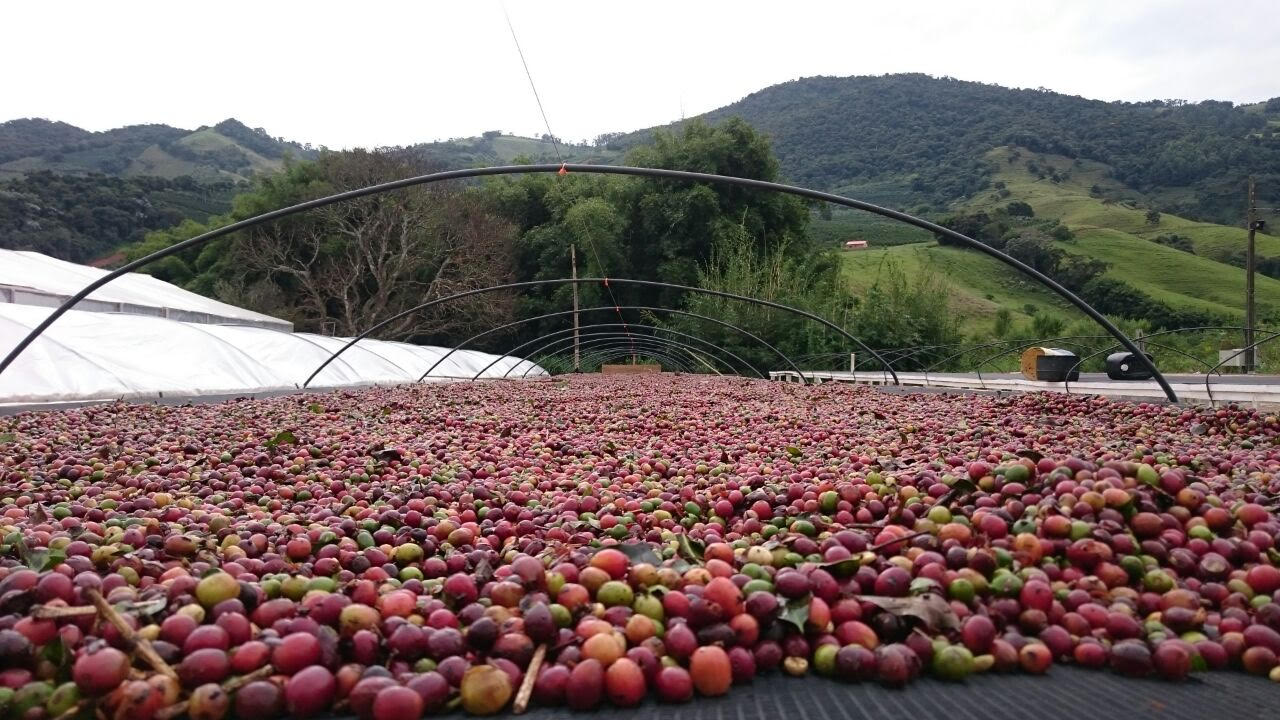
Projects
Adopting regenerative practices on coffee farms
In Brazil, the coffee growers we partner with have committed to regenagri®, an international regenerative agriculture programme. This way of farming improves soil fertility, stores atmospheric CO2, and improves water and energy management.
The initiative aids in regenerating farmland and securing a sustainable future for agricultural products.
Discover more
Projects
Regenerative farming for Mexican cotton
 2022-Present
2022-Present
In Mexico, we launched a regenerative cotton programme consisting of 46 growers, covering 14,000 hectares. The 2023/24 crop produced 27,000 bales of cotton and achieved the first ever regenerative agriculture certification in Mexico.
Building on this success, we are extending our investment and making biological crop protection and fertilisers available to producers, regardless of whether they are enrolled in the scheme, as part of our commitment to add value to growers.
Discover more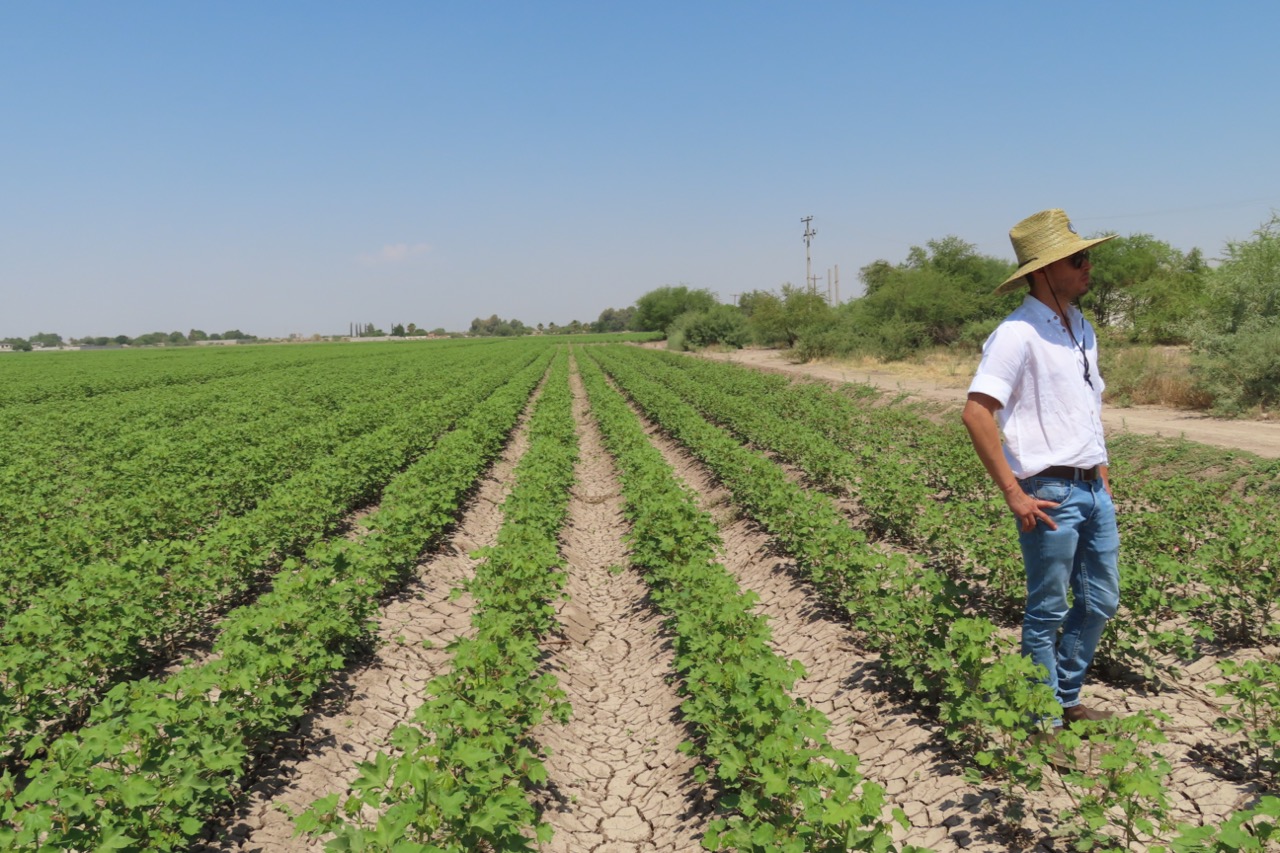
Projects
Evaluating biodiversity risks in Ecuador
In Ecuador, ECOM worked with Nature-based Insights (NbI) and Reckitt to carry out biodiversity screening of agricultural land, allowing us to evaluate land risk levels and provide key information to support sustainable cocoa production.
For each area, NbI extracts geospatial data from 16 individual data layers. The areas are then ranked according to risk level, enabling us to prioritise those best suited for farming and those to be conserved.
Discover more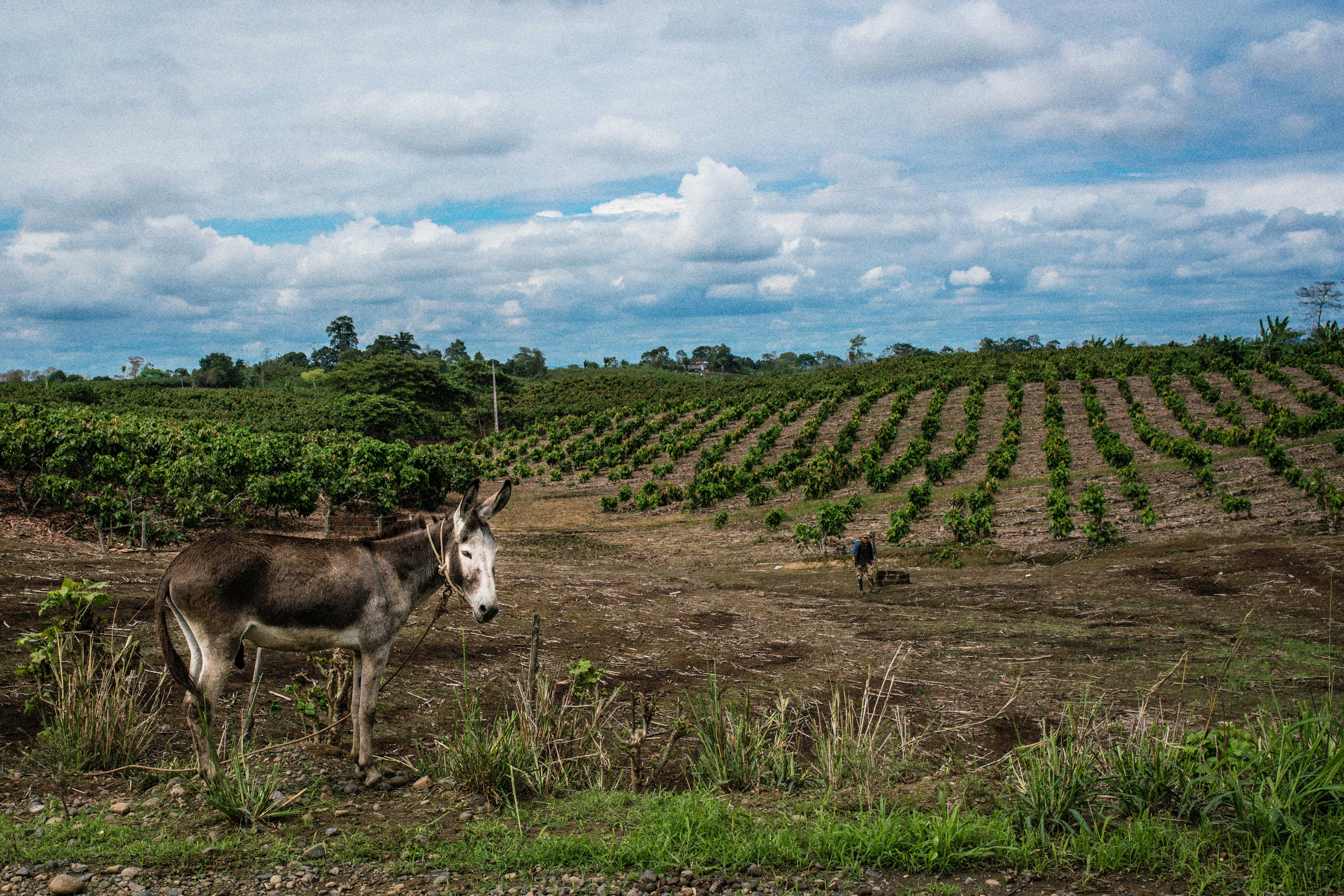
Projects
Keeping bees for better coffee
 2023
2023
In Brazil, we initiated our SMS Bee Project in partnership with Nespresso and CarmoCoffees to encourage coffee farmers to become beekeepers, as bees play a crucial role in maintaining biodiversity and food security while enhancing coffee production.
After training farmers, the project was implemented with five participating growers in the Cerrado and Minas Gerais in Brazil.
In 2023, we had 11 producers participating in the project, producing an average of 2,000 kilos of honey per year.
Discover more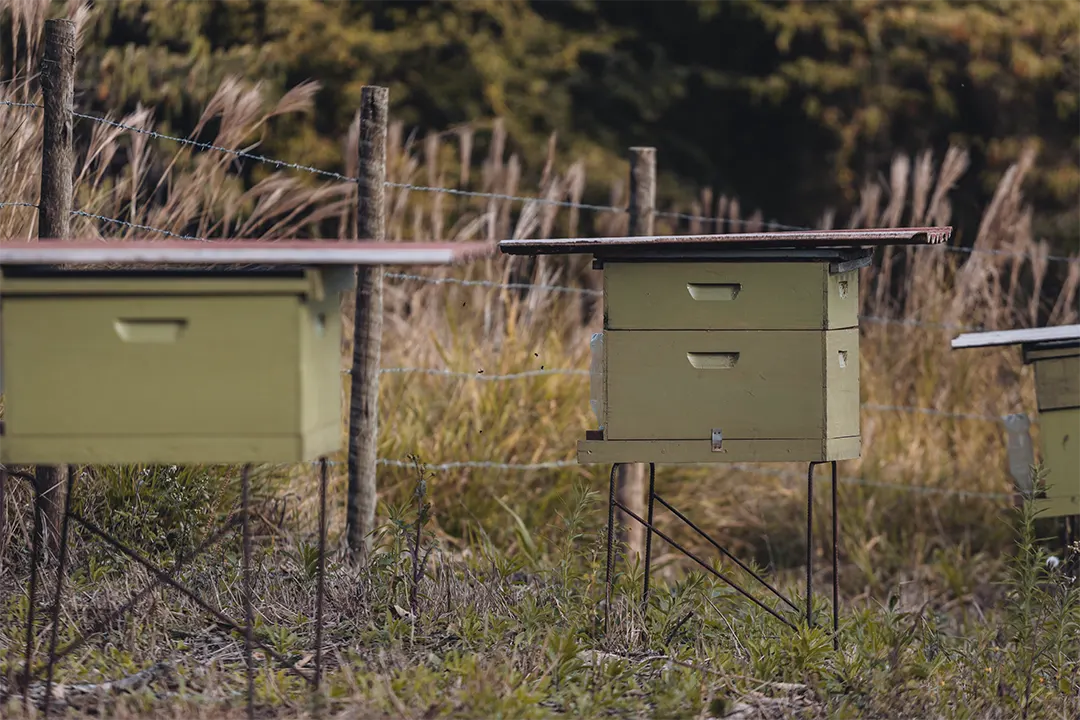
Projects
Our 100 million trees commitment
 2016-2025
2016-2025
In Guatemala, El Salvador and Mexico, ECOM and Starbucks launched the One Bag, One Tree programme. For every bag of coffee sold, a coffee plant was donated to support the renovation of producers’ coffee farms.
To date, more than 28.75 million plants have been delivered to coffee producers in Mexico, with around 4.1 million being supplied to 8,200 producers each year on average.
As a result of the initiative’s success, we now aim to provide no fewer than 100 million replacement trees by 2025.
Discover more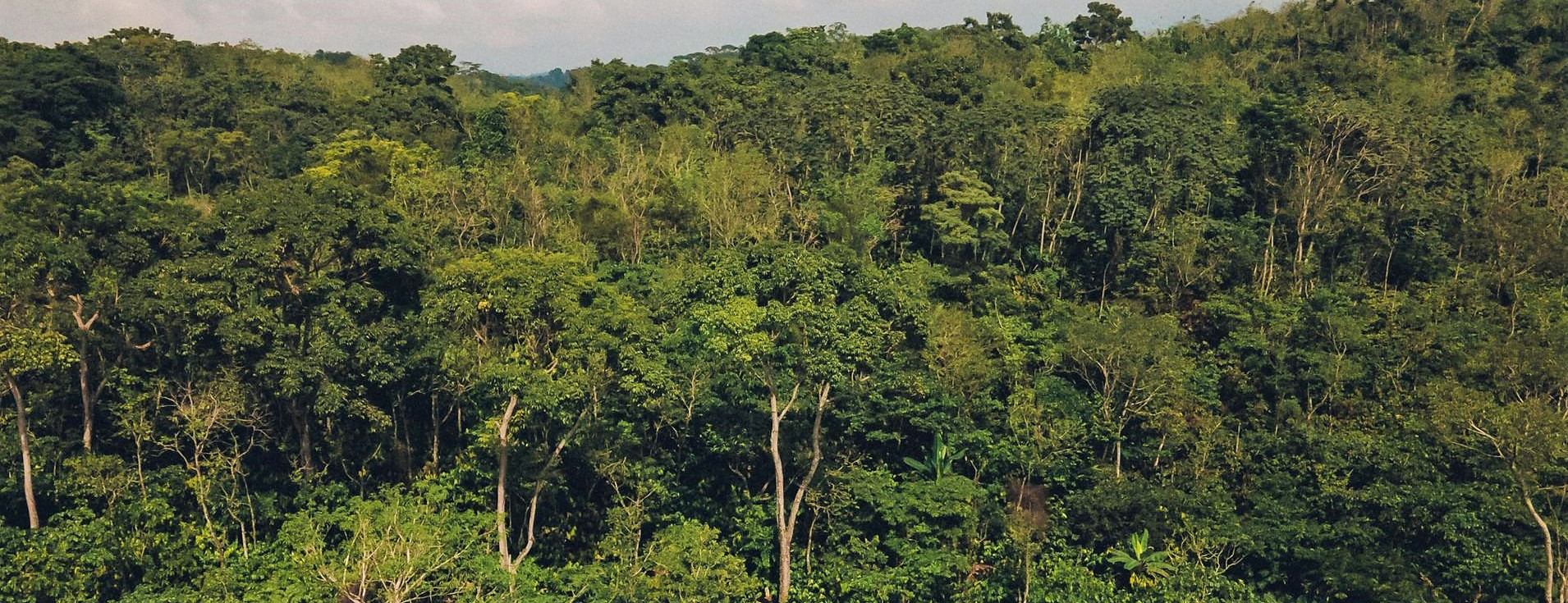
Projects
Weeding out problem plants
 2023
2023
In China, 36 coffee farmers in the Simao District received training in Integrated Weed Management, organised by Pu’er Tianchen Coffee Ltd and Rainforest Alliance. Participants learned the methodology of integrated weed management in coffee plantations, the relationship between weeds and soil fertility, and the impact of chemical herbicides on coffee garden ecology.
Discover more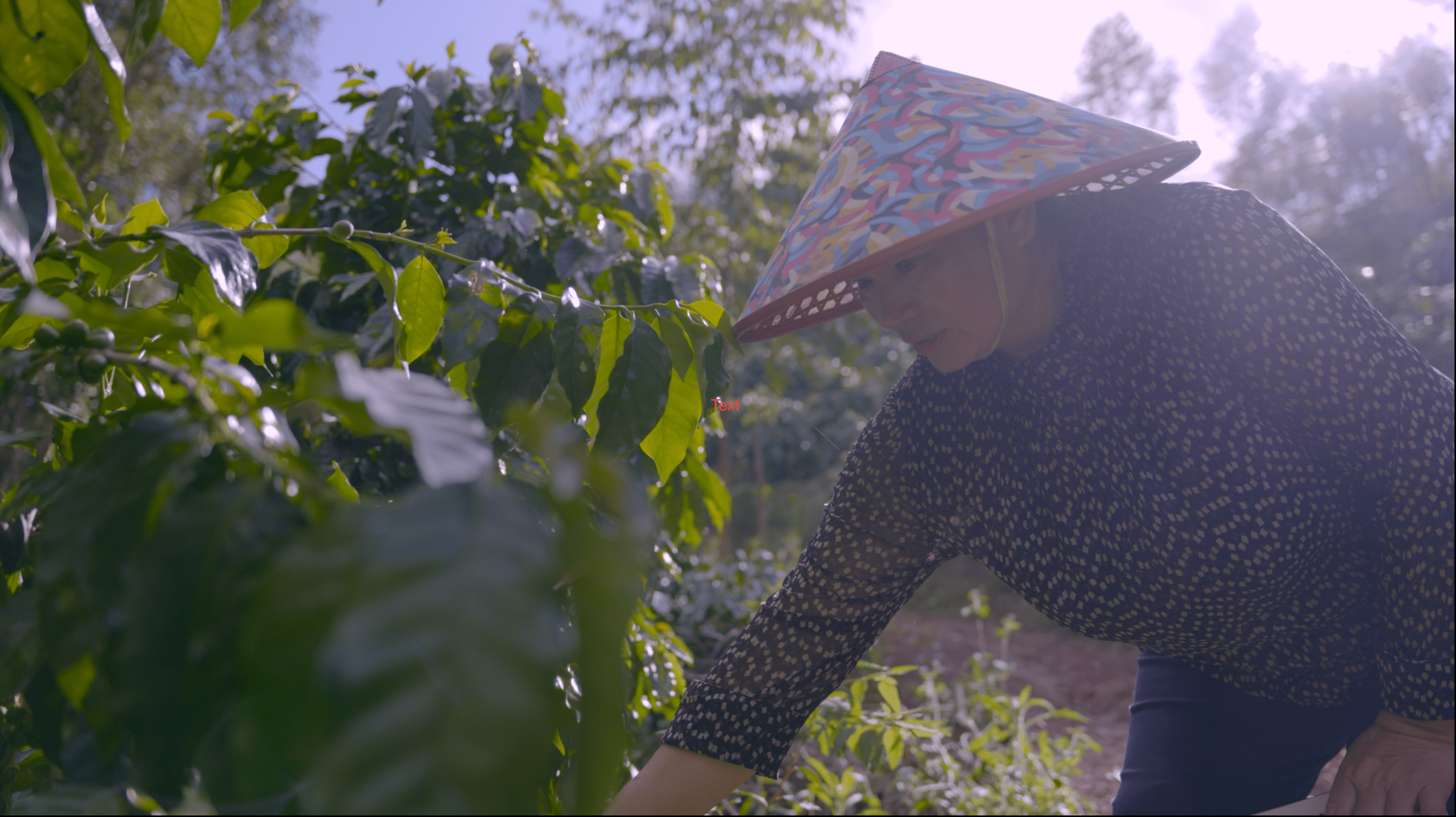
Projects
Developing organic solutions for soil management
In Nicaragua, our SMS team developed two innovative products from by-products of coffee processing: SMS compost, which improves soil structure, and SMS Biol, which contains macro and micronutrients.
Currently, 200 tons of compost and 20,000 litres of Biol are produced every crop. SMS compost and SMS Biol are being registered for commercial use and we are looking to increase the production of compost to process 100% of coffee pulp produced.
Discover more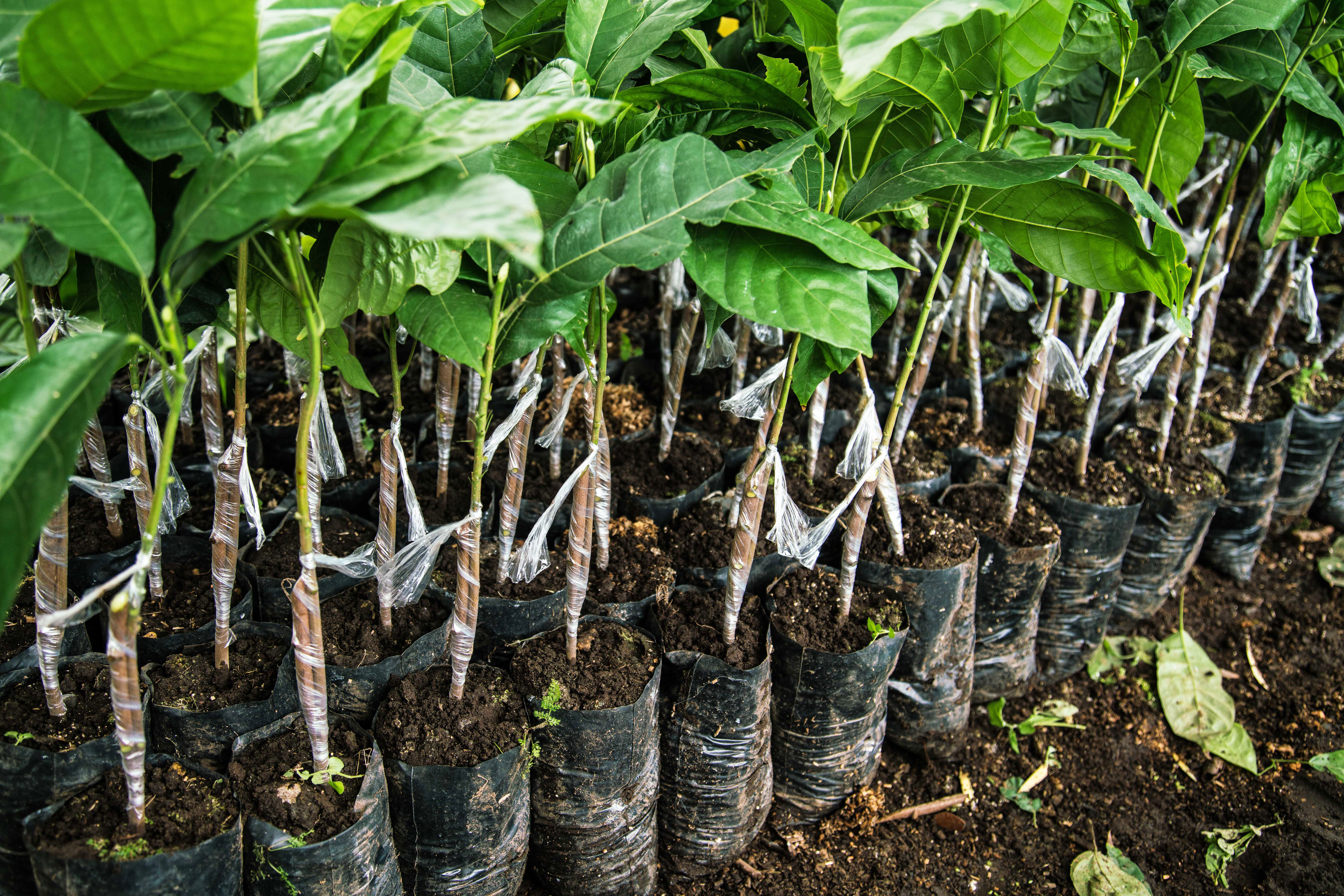
Projects
Collaborating for climate-resilient coffee
In our Nicaragua-based laboratory, Agritech, we work with CIRAD to create new coffee varieties better adapted to climate change. In tests, our new varieties have proved to be 30–50% more productive than conventional types.
The ECOM SMS team also manages a 3 million capacity nursery that uses pioneering technologies to develop climate-resilient plants. Our varieties produce average yields of 2-3 tonnes of green coffee per hectare.
Discover more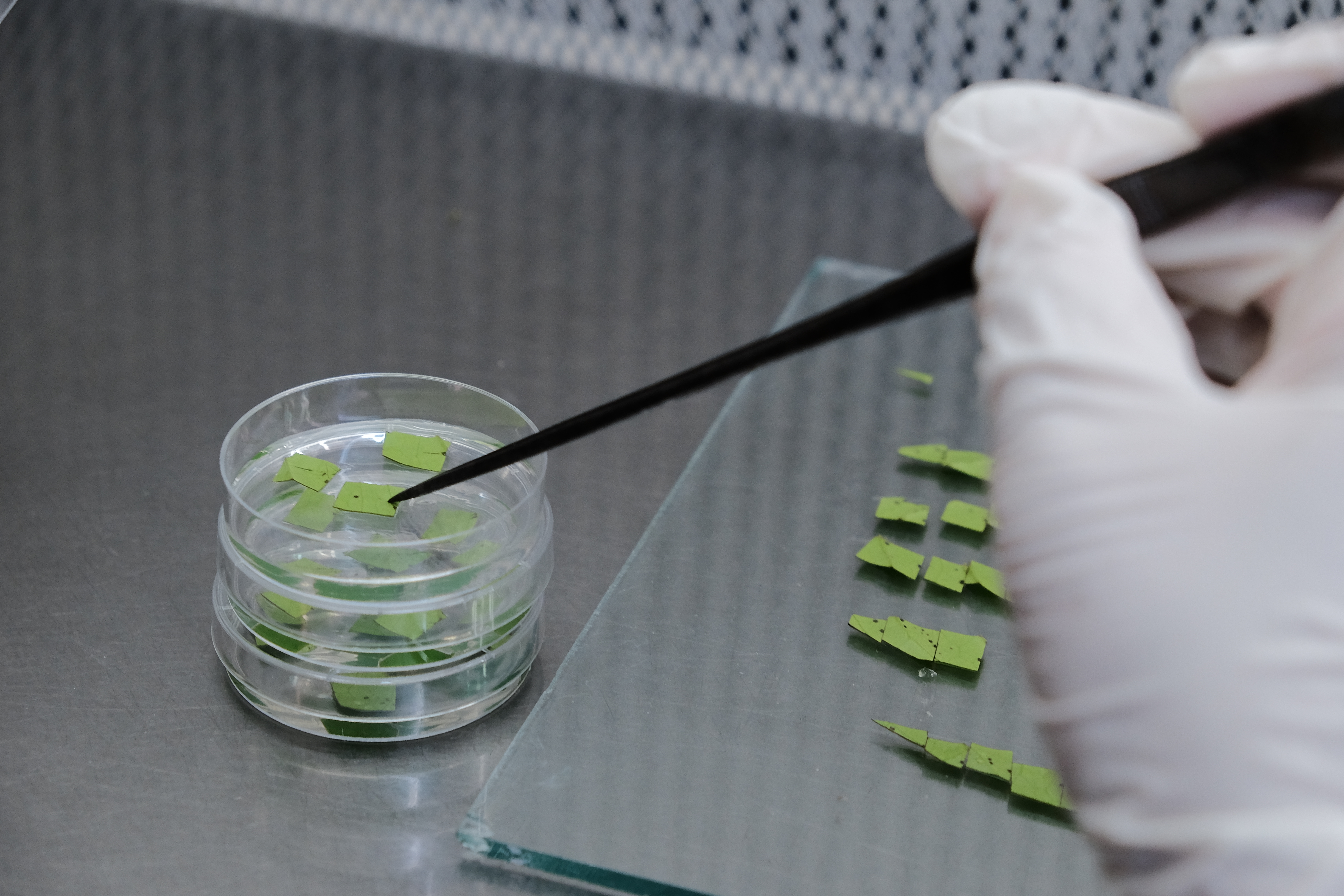
Projects
Regenerating cocoa farms
 2023
2023
In Nigeria, many cocoa trees are ageing and unproductive, with some farms filled with trees that are more than 50 years old.
To address this, ECOM has created a central nursery, where cocoa seedlings are planted and grown for distribution to farmers. In the first half of 2023, more than 100,000 hybrid cocoa seedlings were planted at the central nursery site and over 95,500 plants distributed.
A similar nursery in Mexico produced 500,000 cocoa plants and agroforestry trees annually.
Discover more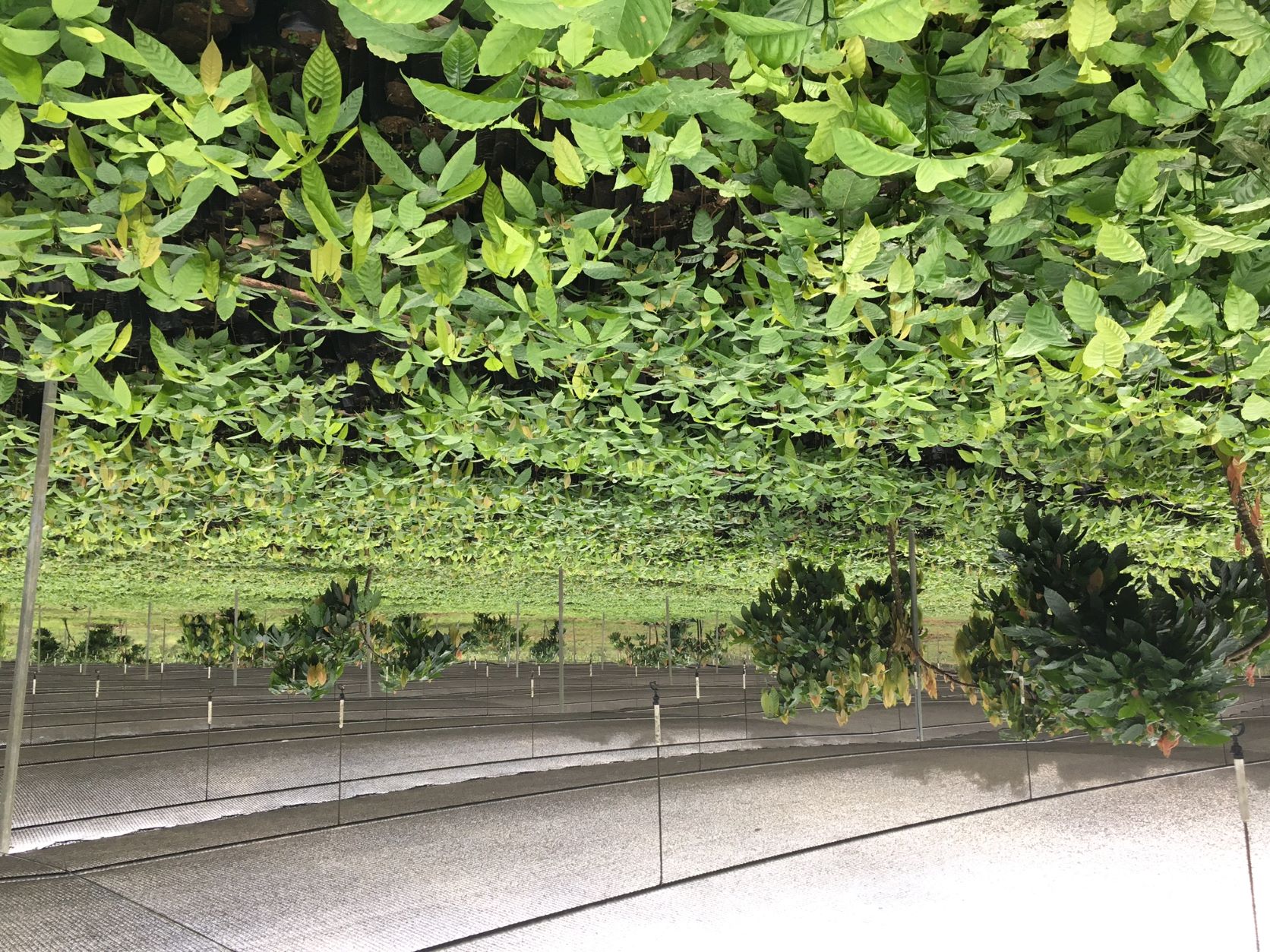
Projects
Converting waste into a 'carbon sponge'
In Brazil, ECOM and NetZero partnered to build a biochar factory. Biochar is a high-potential sustainable solution as it acts as a ‘carbon sponge’, increasing coffee productivity while reducing the use of synthetic fertilisers and storing carbon.
The factory will be able to produce >4,000 tons of biochar each year, enough to cover 1,200 hectares of farmland.
Discover more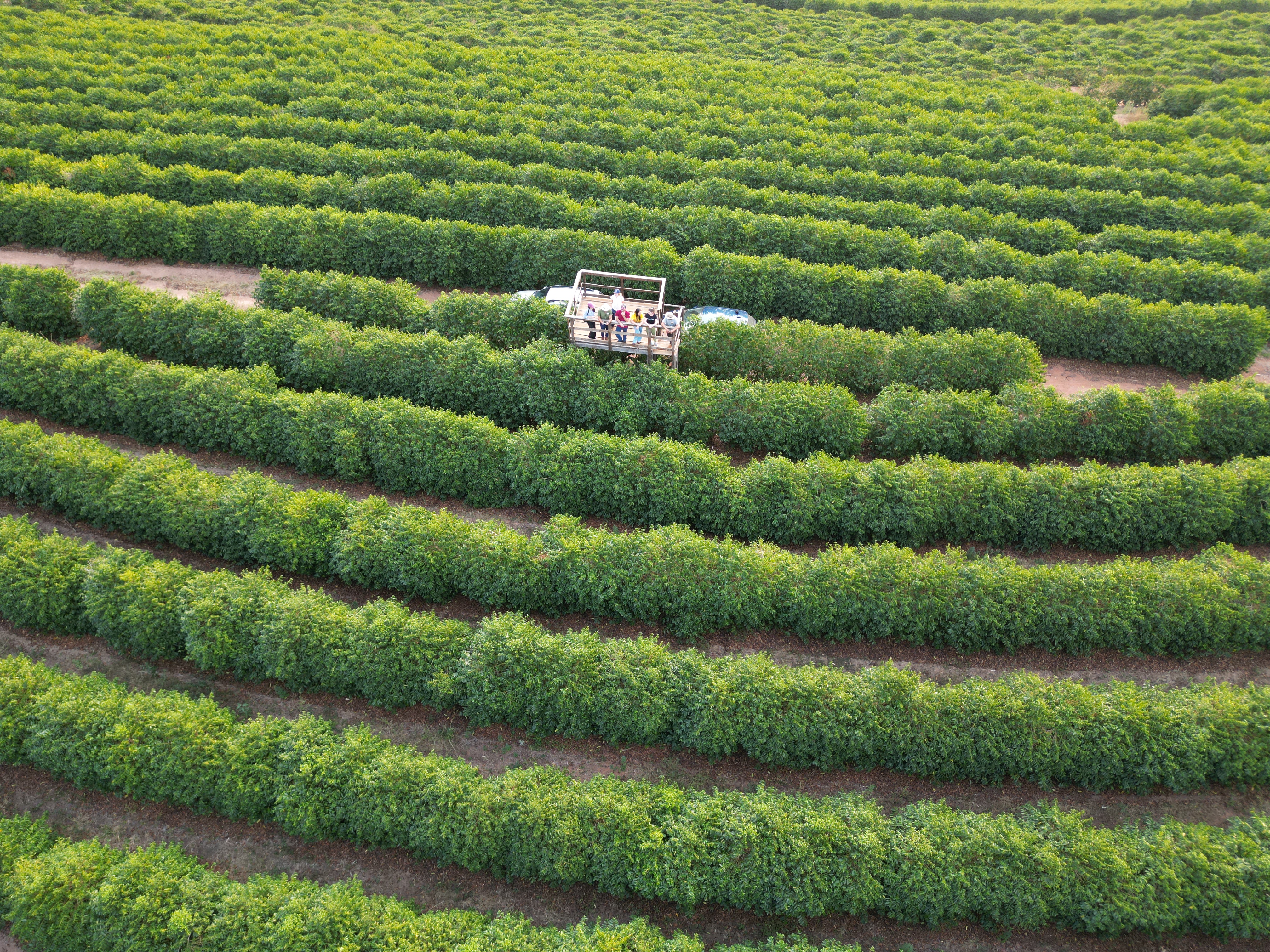
Projects
Removing plastic from our nursery production
 2019-2023
2019-2023
In Guatemala, through our partnership with Starbucks, we are working to replace typical polybags with paper-based BioPegon® pots in our seedling nursery to reduce plastic use.
From 2019 to 2023, the use of BioPegon pots has significantly increased, from just 1% to 66% in Guatemala. That represents more than 4.7 million trees, and the equivalent of fewer plastic bags. Over 34% of the total volume was produced through this technique in Guatemala, enabling us to completely move away from using polybags locally.
Discover more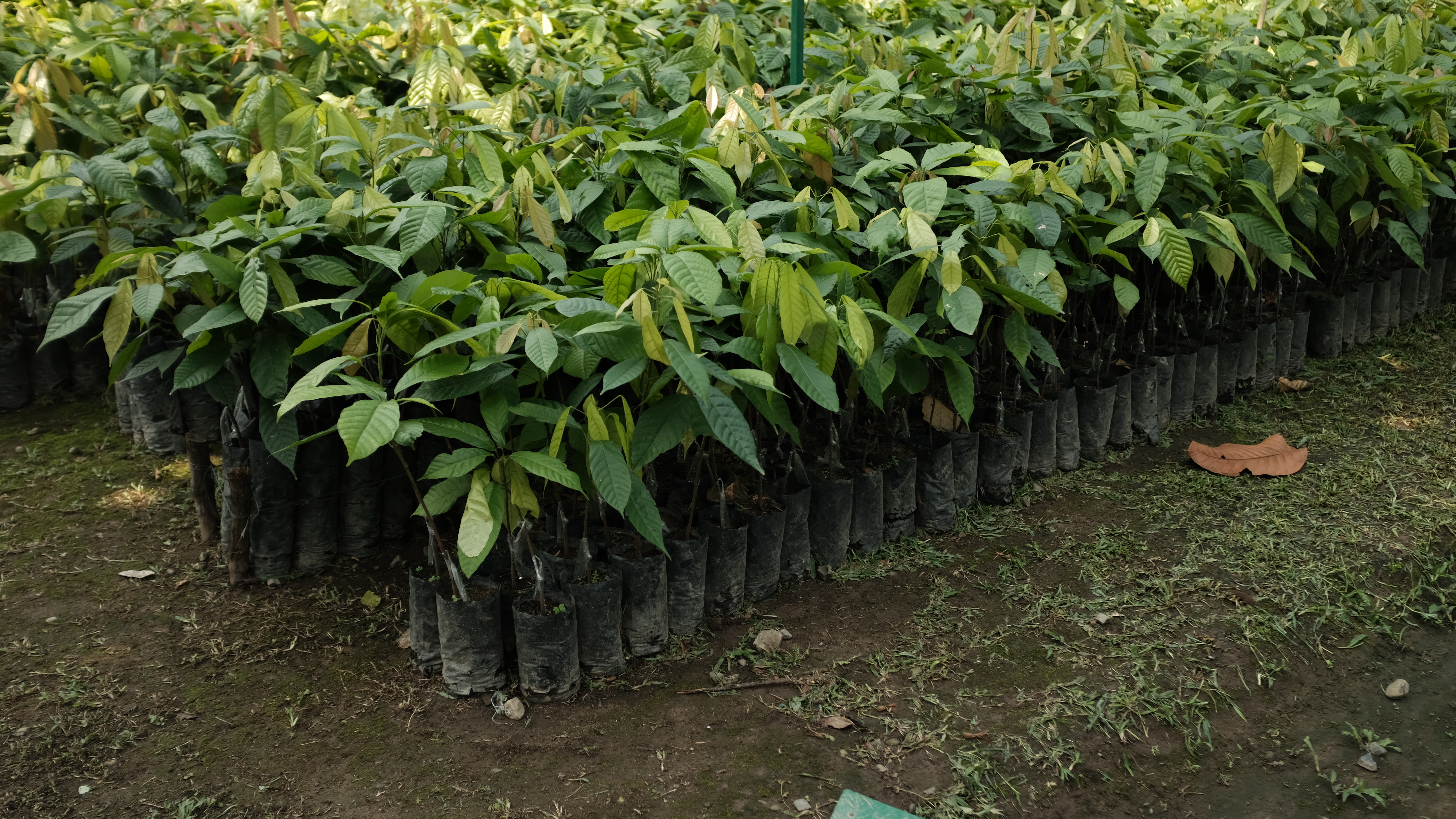
Projects
Reducing water consumption for coffee harvests
 2021-2023
2021-2023
In Colombia, we are collaborating with Starbucks on our Colombia Coffee Resource Positive project to rethink and discover innovative ways to manage water.
Water-efficient wet mills– which have zero waste water consumption– were implemented in 121 households in Huila, Valle del Cauca and Santander. This enabled us to reduce water consumption by 77% for the coffee-washing process at farm level.
Discover more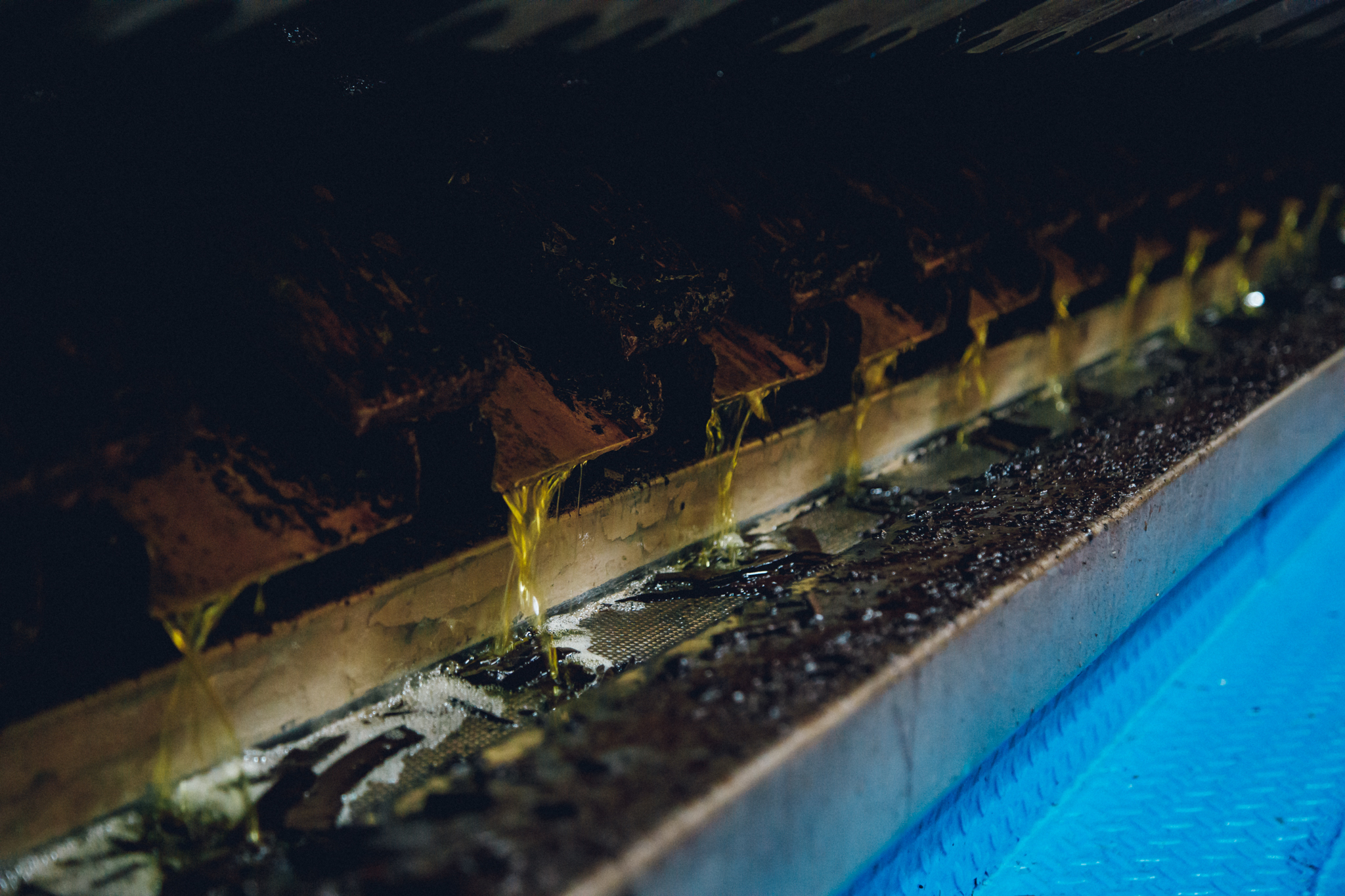
Projects
Assessing the impact of treated coffee wastewater
 2019-2023
2019-2023
In the US, we maintained our partnership with Notre Dame University in Indiana to research two study lines:
1. Building of groundwater simulations of our wet mills to assess the impact of treated wastewater irrigation, and to apply methods to measure the potential impact on river water quality due to wastewater discharge.
2. Investigating new treatment strategies and wastewater modelling for small and artisanal-sized mills.
Discover more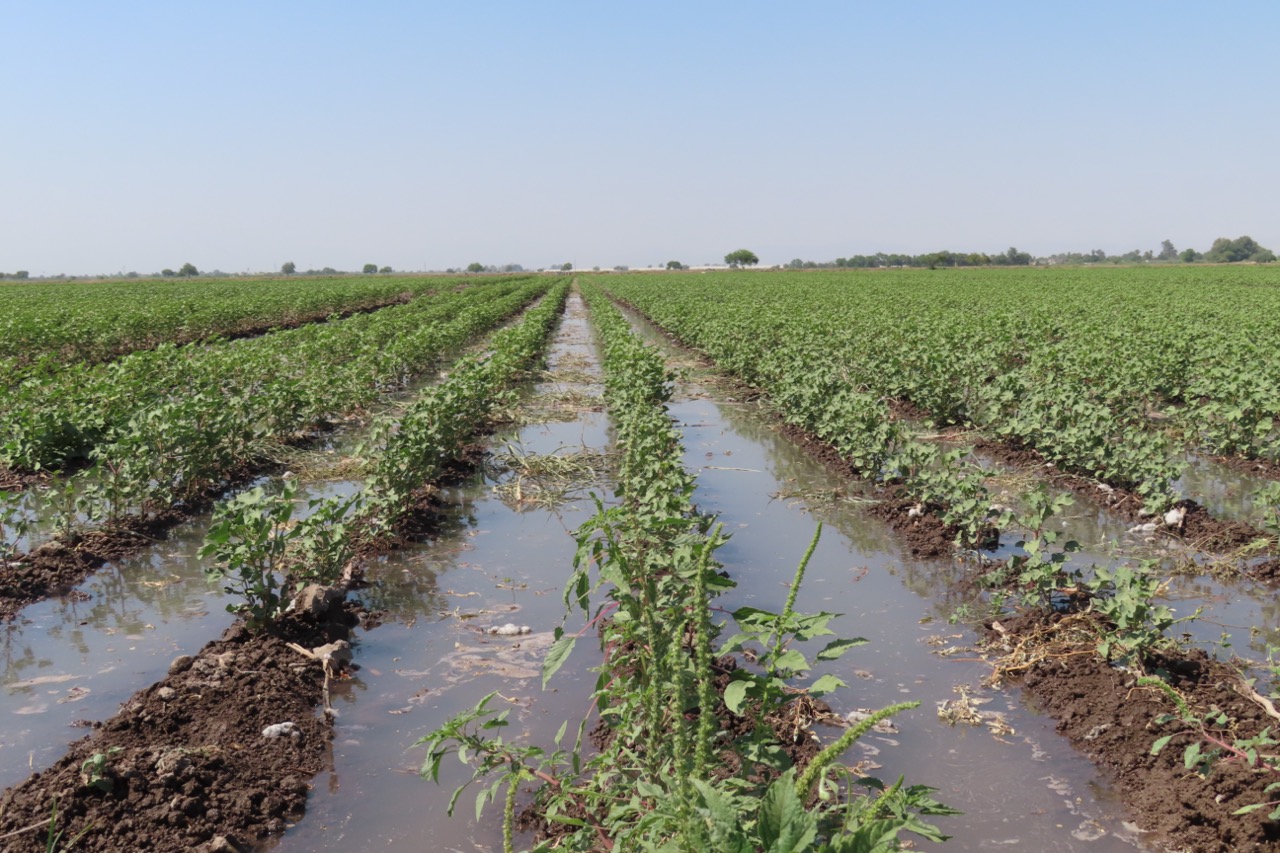
Projects
Improving access to clean drinking water
 2016-Present
2016-Present
In Burundi, through our Akawa Project, natural water sources were identified across the country, with the aim of protecting and sanitising them.
A countrywide topography study saw 36 water sources visited and assessed, based on their outflow, accessibility and current state. As a result, 20 water sources have been protected across nine hills and two washing stations, providing 1,175 households with clean, fresh water. There are more to come.
Discover more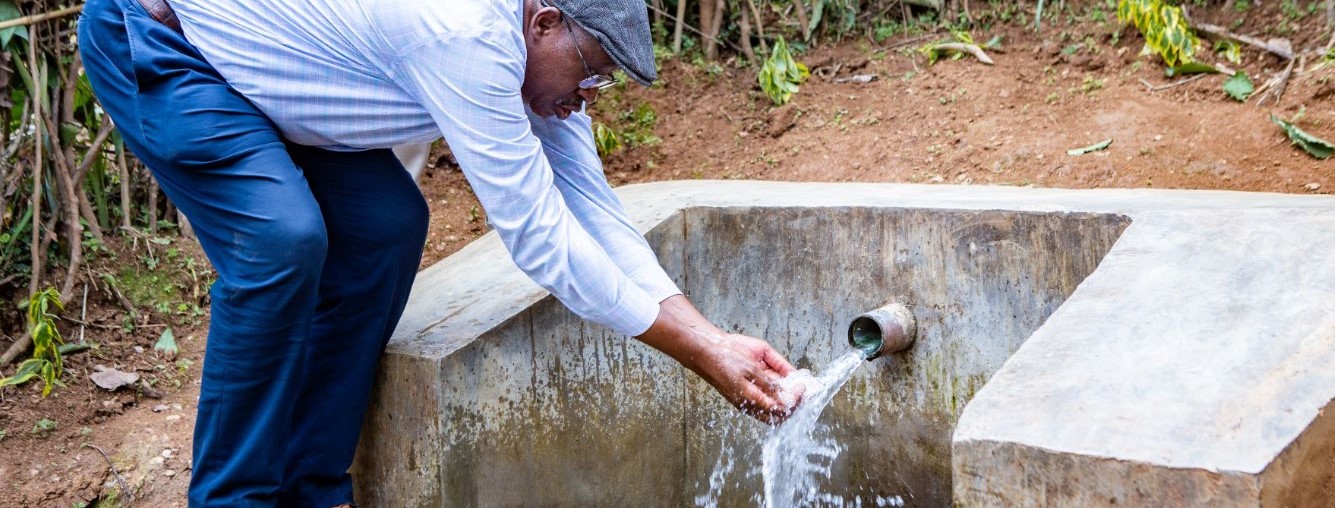
Projects
Using leading first-mile technology to improve data capture

 2023-Present
2023-Present
In Nigeria and Vietnam, ECOM has selected BanQu as our first-mile technology partner. Our goal is to continue ECOM’s sustainability journey with an enterprise traceability block-chain solution that provides auditable, real-time data and provides greater transparency and assurance throughout our multiple complex supply chains.
We will continue to roll out the programme in more of our cocoa and coffee-producing origins in 2025.
Discover more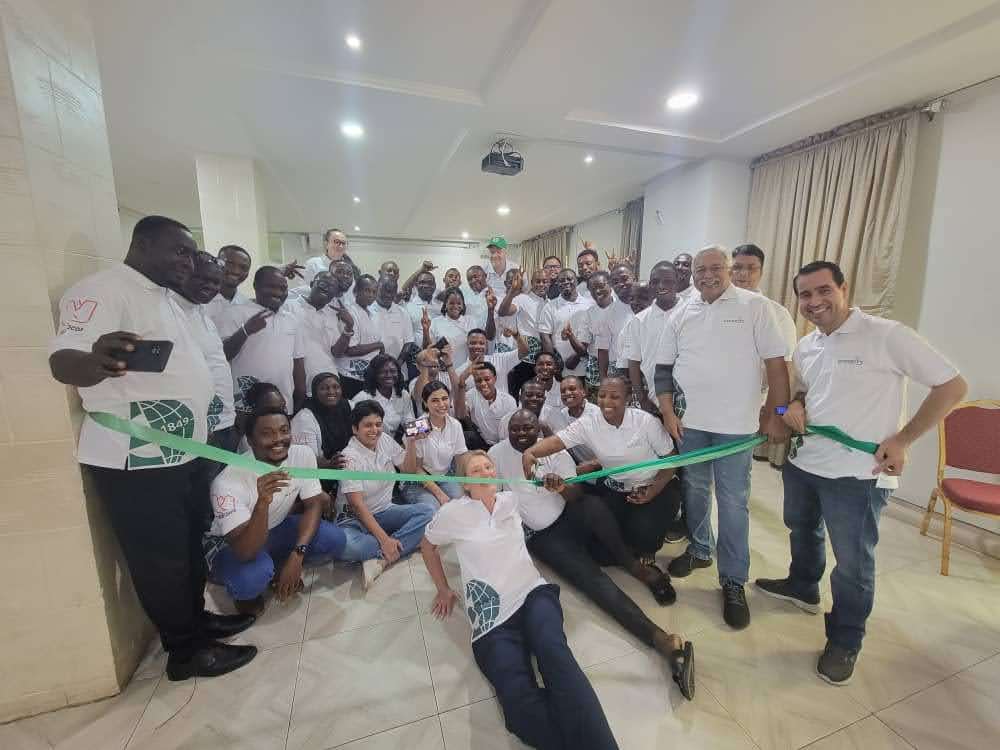
Projects
Climate-smart cotton production
 2023
2023
In the US, our project to help achieve traceable, climate-friendly cotton production was supported by a US$30 million grant from the USDA, and is being used to help promote the adoption of sustainable practices for cotton production by US farmers.
In 2023, the 36 farmers enrolled in the programme produced nearly 15,000 bales despite challenging drought conditions in West Texas. With the 2024 crop, we have increased the number of farmers enrolled to over 150, extending the programme to cotton farmers in Arkansas and Georgia.
Discover more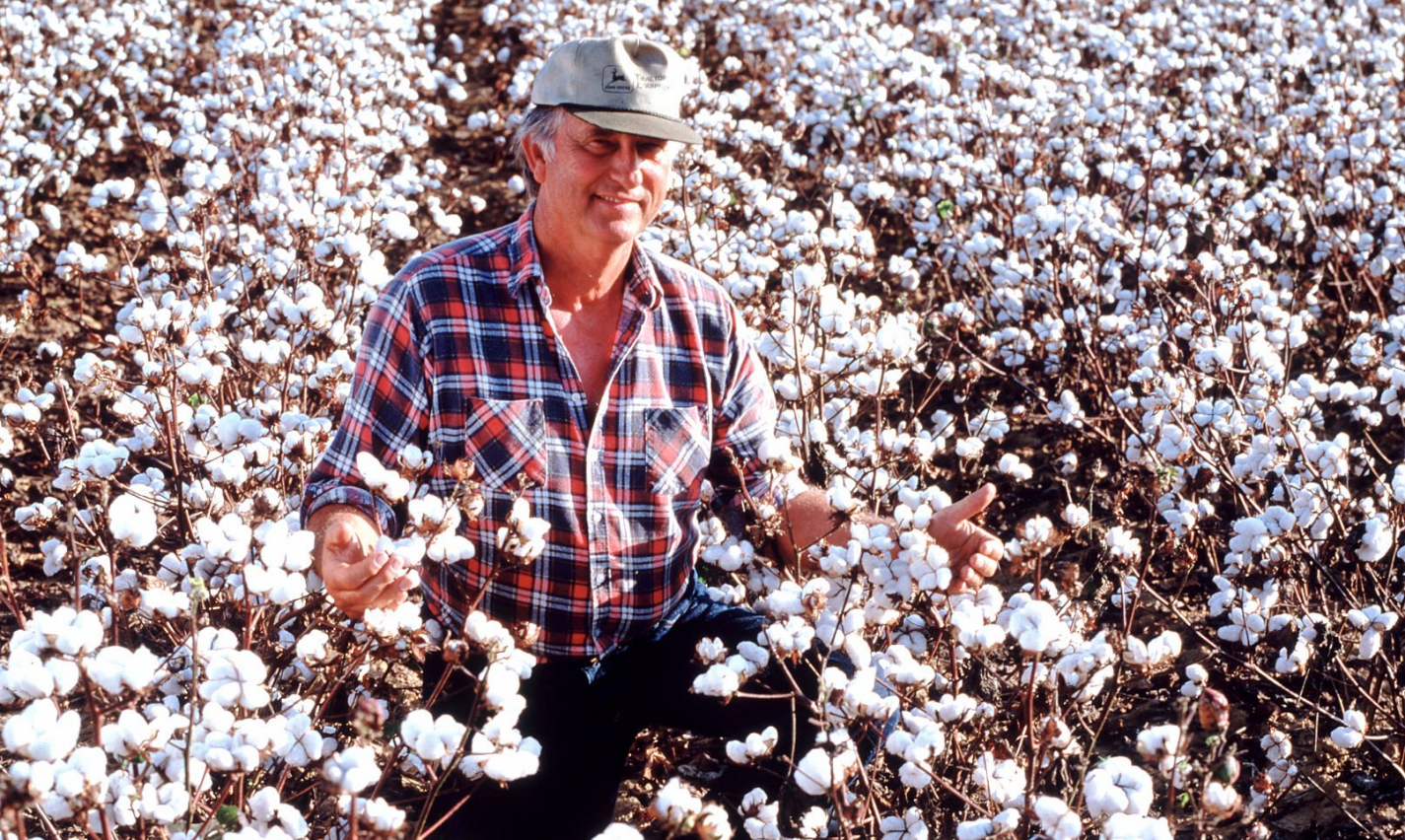
Projects
Knowledge sharing through social media
 2023
2023
In Mexico, ECOM’s Customer Care and Monitoring Centre (CASC) is a remote guidance tool that allows coffee farmers access technical assistance, information on sales of seeds and higher quality plants, market prices and training events, and more.
Over 1,200 growers now use the tool to improve their farming practices. In 2023, CASC recorded 62,177 social media interactions. It has also expanded to include a smart chat feature accessible via WhatsApp, which offers specialised information on coffee farming 24/7, 365 days a year.
Discover more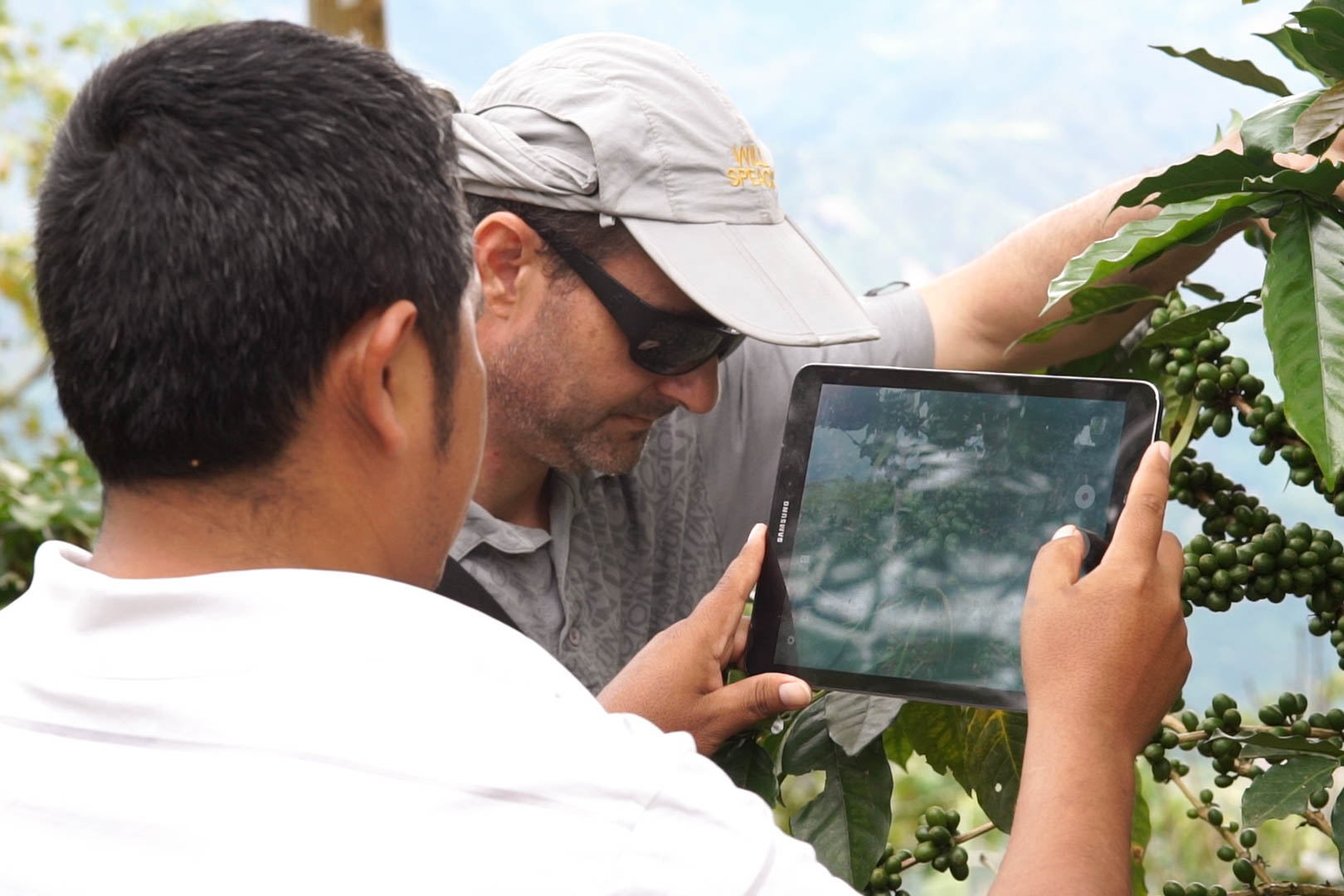
Approach and Strategy
Our pillars summarise the group-wide, strategic approach to ethical and environmental trading for the good of communities and for our shared environment.
As one of the world’s leading soft commodity suppliers, with a customer base in over 75 countries, we have a tremendous opportunity to embed sustainable, ethical practices into our global supply chains.
Our Second annual Cocoa Sustainability Report discusses our progress we have made on the Charter’s commitments and key performance indicators (KPIs) to ensure maximum transparency. We are currently in the process of defining rigorous KPIs for Coffee and Cotton against our Group-wide Commitments”
Our sustainability approach
2023 Sustainability Report
ECOM Group Sustainability Report
As an origin-integrated business, ECOM invests from source to customer, maximising efficiencies and innovation throughout our network to create a more agile value chain.
The 2023 report covers our group-wide activities and achievements for 2023 and ambitions for the future.
Read our 2023 ECOM Group Sustainability Report here

Digitisation
Harnessing cutting edge remote sensing technologies
ECOM monitors deforestation risks by using satellite and remote sensing technology. The risk assessment work is proving scalable solutions, helping us to create global models that determine and predict areas in our value chain that have been deforested in the past and have the highest likelihood of being deforested in the future.
This work will be used, alongside further contextual data, to identify priority landscapes. The outputs will inform coordinated engagement between relevant stakeholders in the cocoa sector committed to eliminating deforestation in their supply chains.
Discover more
Empowering Farmers
Improving gender representation among farmers
While the GEI is helping us to more precisely identify areas for improvement in gender representation, we have been working to support women farmers for some time.
Following two pilot iterations in the cocoa supply chain, in Ghana and Peru, we now aim to roll the GEI out across the Group with a focus on addressing and empowering women in five key ways: Organisational capacity; Strategy and analysis; Reach women; Benefit women; Empower and transform.
Read more
Digitisation
Harnessing cutting edge remote sensing technologies
ECOM monitors deforestation risks by using satellite and remote sensing technology. The risk assessment work is proving scalable solutions, helping us to create global models that determine and predict areas in our value chain that have been deforested in the past and have the highest likelihood of being deforested in the future.
This work will be used, alongside further contextual data, to identify priority landscapes. The outputs will inform coordinated engagement between relevant stakeholders in the cocoa sector committed to eliminating deforestation in their supply chains.
Discover more
Empowering Farmers
Improving gender representation among farmers
While the GEI is helping us to more precisely identify areas for improvement in gender representation, we have been working to support women farmers for some time.
Following two pilot iterations in the cocoa supply chain, in Ghana and Peru, we now aim to roll the GEI out across the Group with a focus on addressing and empowering women in five key ways: Organisational capacity; Strategy and analysis; Reach women; Benefit women; Empower and transform.
Read more
Digitisation
Harnessing cutting edge remote sensing technologies
ECOM monitors deforestation risks by using satellite and remote sensing technology. The risk assessment work is proving scalable solutions, helping us to create global models that determine and predict areas in our value chain that have been deforested in the past and have the highest likelihood of being deforested in the future.
This work will be used, alongside further contextual data, to identify priority landscapes. The outputs will inform coordinated engagement between relevant stakeholders in the cocoa sector committed to eliminating deforestation in their supply chains.
Discover more
Empowering Farmers
Improving gender representation among farmers
While the GEI is helping us to more precisely identify areas for improvement in gender representation, we have been working to support women farmers for some time.
Following two pilot iterations in the cocoa supply chain, in Ghana and Peru, we now aim to roll the GEI out across the Group with a focus on addressing and empowering women in five key ways: Organisational capacity; Strategy and analysis; Reach women; Benefit women; Empower and transform.
Read more
Our Alignment
UN Sustainable Development Goals
ECOM has long recognized the importance of sustainability by embedding ethical practices into our operations and supply chains. Our group-wide strategic approach is informed by our most material topics— which can be found in our 2023 Cocoa Sustainability Report— and addresses the creation of a more sustainable future across our commodities. This strategy aligns with several of the United Nations’ Sustainable Development Goals (SDGs), and we are dedicated to allocating our resources to achieve them in a timely manner.
ECOM operates within a complex landscape marked by diverse human rights and environmental challenges. Together with our partners, we are actively working toward achieving the SDGs outlined above. However, we recognize that our approach remains a work in progress, and we are committed to continuous improvement.
Please follow this link to the United Nations Sustainable Development Goals website to learn more about the SDGs.
The content of this publication has not been approved by the United Nations and does not reflect the views of the United Nations or its officials or Member States.
